
1 Brought to you by Bible Society Australia Winter 2023 Do we need revival today? pages 12-13 Tim Keller: his making and legacy pages 4-5 Inside the Asbury Revival pages 10-11 The Jesus Revolution rocks Hollywood page 23
Strong to the core
I recently took myself off to Jamberoo Abbey – a monastery nestled in the lush, green rainforest of the NSW South Coast. Like the community of Benedictine nuns who live there, I was seeking silence and solitude.
As a mum of three teenage girls, a minister’s wife and the owner of a consuming job, I was gasping for space. So intense was this craving that it became almost physical, just as expressed in Psalm 42: “As the deer pants for streams of water, so my soul pants for you, my God.”
During my five-day stay at the Abbey, apart from the occasional good morning to staff, nuns and other guests, the only person I spoke to was God.
My night-times were spent doing Bible study or reading other books. In the mornings I lingered over devotionals; sat gazing at the glory of green hills, the intricacy of a bird’s wing or a flower; and took long walks along rainforest-canopied trails. In the afternoons, I strolled to the chapel, where I stared into the eyes of Jesus – via an arresting portrait hung on the wall and through my heartfelt prayers.
I’d like to share with you, dear Eternity reader, a particular lesson that God revealed to me on one of my daily pilgrimages near the Abbey. I had taken a chance on an unknown, particularly slippery downhill trail. The middle of the path was akin to a mudslide, while the edges were skirted with loose gravel – a perfect recipe for injury! I searched for a walking stick to help navigate my way down. But, in the rain-soaked greenery, this proved difficult to find. Each time I found a good-looking stick, as soon as I applied pressure on it, it would bend or break. While
each stick looked fine on the outside, the insides were rotten. Knowing I couldn’t trust a rotten stick to carry out the task I needed (that is, to get me down the hill on my feet instead of my bottom), I conducted a thorough search until I found a more reliable one. The stick I ended up with was pretty gnarly on the surface, but its inside was firm and strong. When I reached the end of the trail, the divine lesson in this exercise hit me. This is exactly what it’s like for God when he is looking for Christians to do his work on earth, I realised. God can only use us if our core is strong. We might be a bit rough looking on the outside – battered by life, tainted by sin and the world – but if our centre is firm, with our “eyes fixed on Jesus” and his resurrection power within us, he can still use us. It’s the inside, not the outside, that counts.
This brings me to this issue’s feature on the late US pastor and evangelist Timothy Keller. It’s hard to quantify the impact that Keller had over his lifetime and will continue to have, even after his recent death. His teaching has reached hundreds of thousands, if not millions. God was able to use Keller so mightily because his centre remained rock-solid: “The gospel that saves, sustains for our entire lives. Jesus Christ is our everything. That’s the core,” says author of a new book on Keller, Collin Hansen (read more on page four).
The gospel and Jesus Christ: this is also at the heart of revival. Following the ‘awakening’ at Asbury University in February (page 10), many have been witnessing and predicting flow-on movements of the Holy Spirit. In this issue (page 12), we ask three ‘revival experts’ to unpack the characteristics of revival, what it’s looked like in Australia and whether or not we should expect revival today.
Also in this edition, Wayne Alcorn, National President of Australian Christian Churches, gives hope to men with a deep “father wound” at their centre that is limiting their effectiveness for God’s kingdom (page 16).
My prayer as you read this issue is that you will be drawn back, once again, to the heart of our faith: our Saviour. May his love and sacrifice for us be cemented in our souls so that the core of his church remains solid, impenetrable by the world with its temptations and troubles. Let us rely on God’s strength to be ready to be used by him, whenever and wherever he calls us.
“Look to the Lord and his strength; seek his face always.”
(1 Chronicles 16:11)
Australia’s Forgiveness Cross launched Anne
Lim
Let there be light!” cried Ikuntji Elder Douglas Multa, moments before the Forgiveness Cross on Memory Mountain – six hours north of Uluru in the NT’s West MacDonnell Ranges – was illuminated for all to see. Cheers rang out from people who had come from across Australia to witness this momentous occasion.
To update your postal details or for other enquiries:
Email: eternity@biblesociety.org.au
Phone: 1300 BIBLES (1300 242 537)
Web: eternitynews.com.au
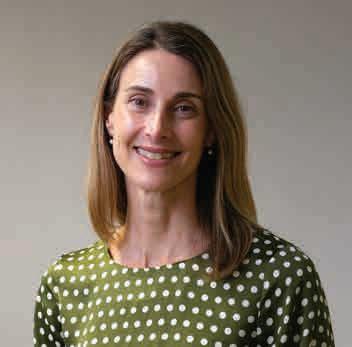
Facebook: eternitynews
Instagram: @eternity.news
Eternity is published by Bible Society Australia Print Post Number PP100019810
To receive more great content in your inbox, scan the code to receive Eternity’s weekly enewsletter.

eternitynews.com.au/subscribe-to-eternity-news
Seeing the Cross in remote Central Australia standing tall and illuminated for the first time on Good Friday, 7 April 2023, was a proud and joyful moment for world-renowned Australian photographer Ken Duncan and his wife, Pam. They had been working and advocating for this moment since a local elder told Ken 12 years ago that his community wanted to build a giant cross there to show that our nation is united under Jesus.
“There were tears of joy all round as we embraced the local Indigenous leaders who are thrilled that their long-held vision has come to fruition,” Ken told Eternity
“Many people worked long and hard to complete this mammoth task and the Cross itself is quite an engineering feat.
“And now we can start to build amenities and infrastructure for tourism activities that will provide meaningful jobs for local Indigenous people and help them create sustainable enterprises for economic independence and real hope for their future.”
People from across the land joined with local Ikuntji people to dedicate this 20-metre-high steel structure in the centre of Australia.
Northern Territory Chief Minister Natasha Fyles and Attorney-General Chansey Paech were both there to witness the Forgiveness Cross being illuminated for the first time, as was TV journalist Ray Martin, another long-time advocate of the project.
Fyles described the event as symbolic: “Often the Northern Territory and Indigenous people are put in the national spotlight, but not in a positive way. What is wonderful about this weekend and the future here is that this is local decision-making; this is community coming together.”
It’s been a hard road to achieve the finished project, with environmental and political challenges and delays caused by the COVID pandemic.
“It’s been an amazing journey and there’s been opposition, but these people have stood strong,” Ken said. “I think this is the beginning of a lot of good stories.”
Year 13 is a christian gap year for school leavers, preparing you to change the world for Christ, whatever walk of life you choose. Spend a year with like-minded young people from all over Australia! During your Year 13 discipleship Gap Year, you will grow in your knowledge and understanding of God, serve on an overseas mission, learn what discipleship can look like in your life now and in the future and have a whole lot of fun.

Memory Mountain is named in honour of four young Indigenous evangelists who first preached the gospel in the Western Desert 100 years ago. Hundreds responded to their message of forgiveness and were baptised.
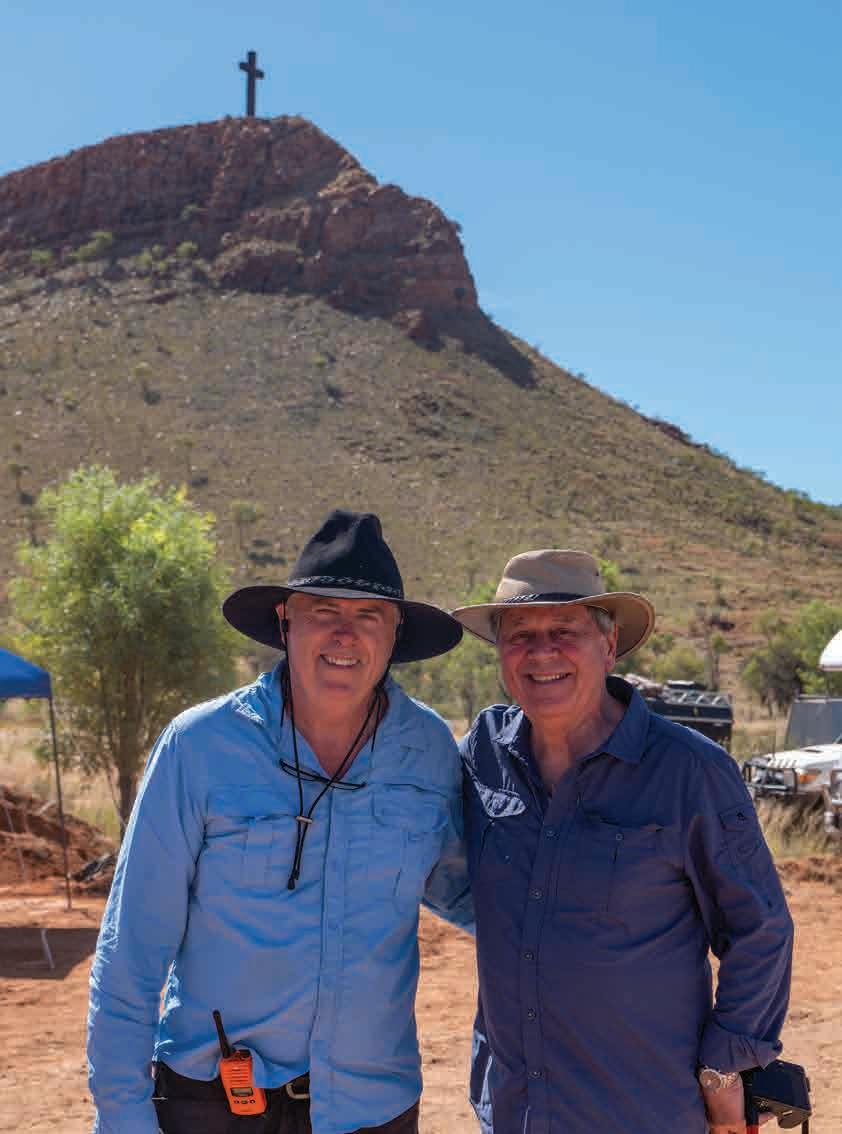
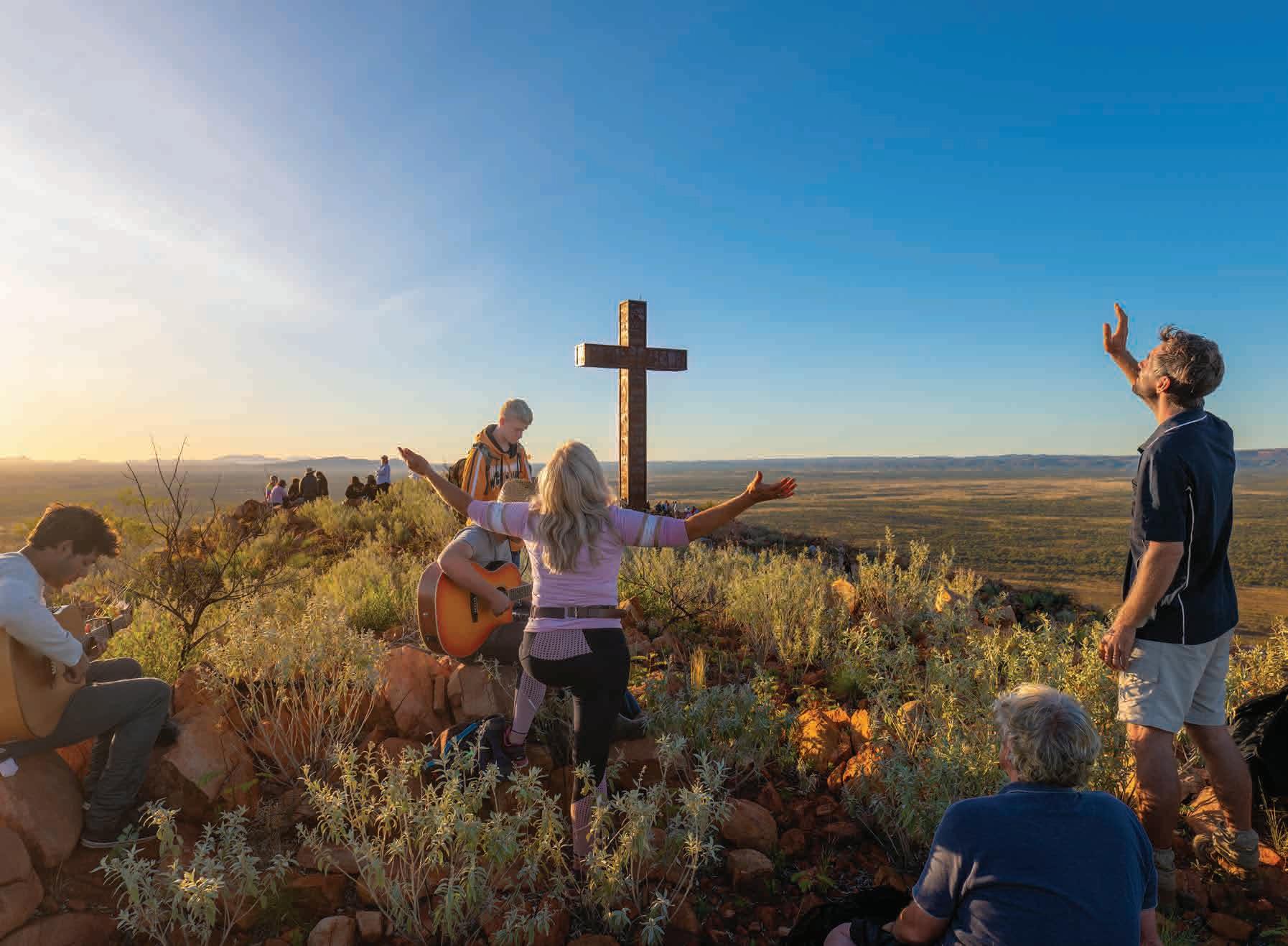
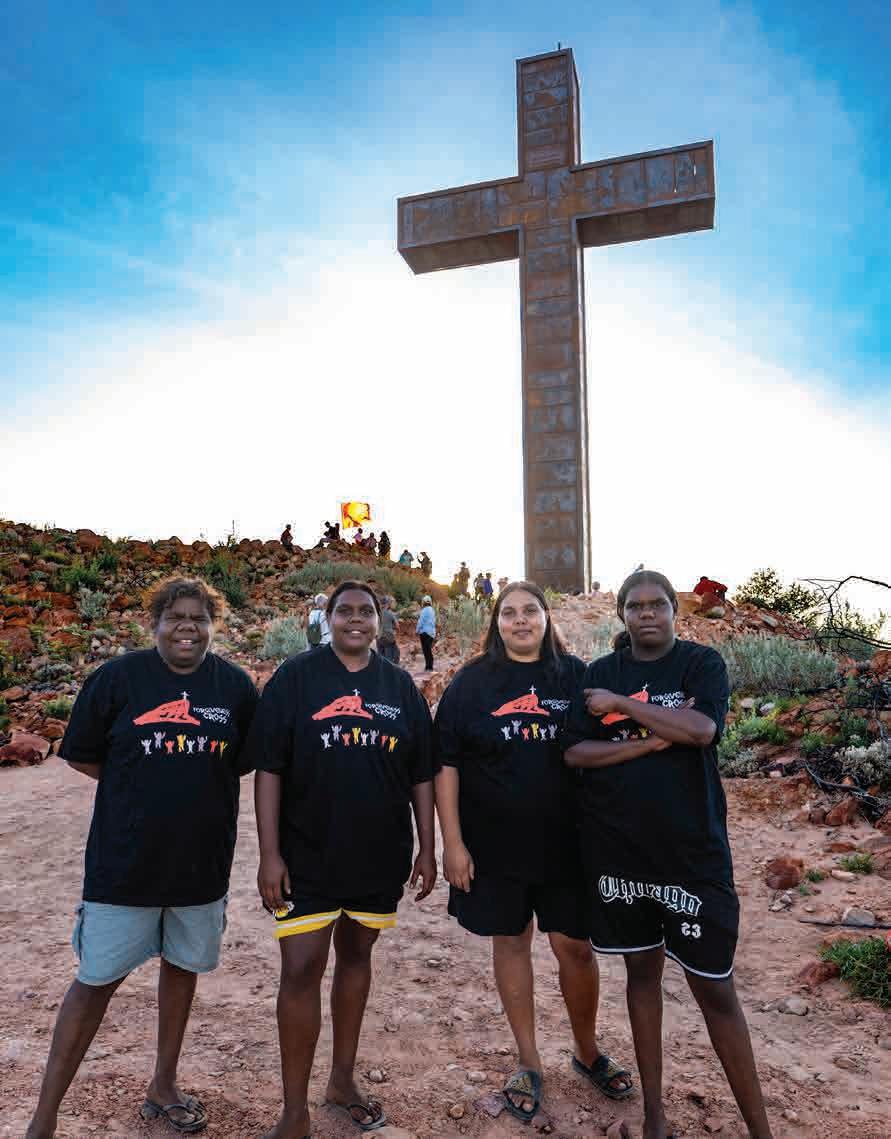
Now, with the Forgiveness Cross installed, it’s hoped many more people will be drawn to the mountain as a place of prayer, contemplation and worship, where everyone is welcome.
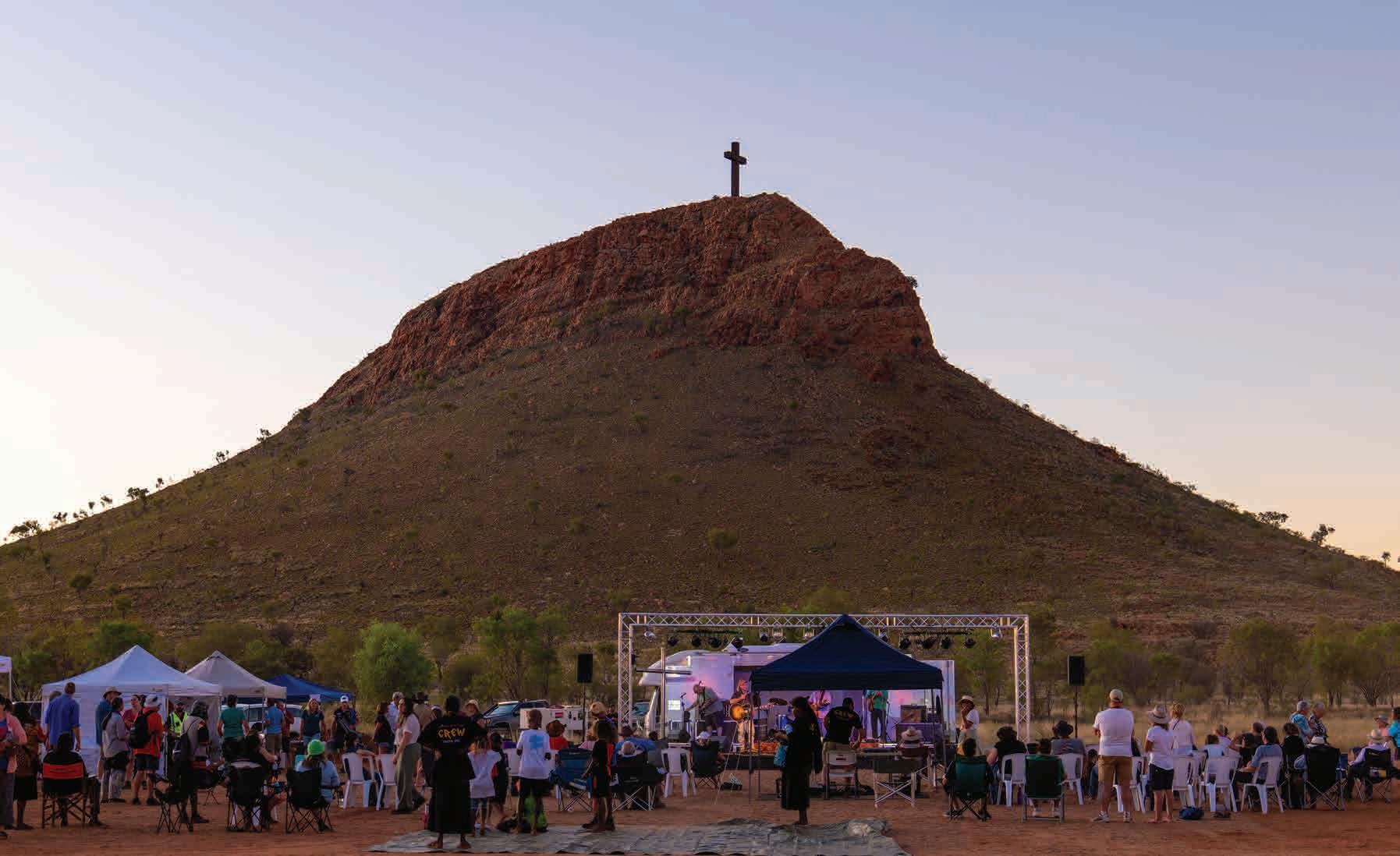
3
“
The launch ceremony. Images: Walk a While Foundation
Ken Duncan and Ray Martin Proud local guides
People from across the land joined with local Ikuntji people to dedicate the Forgiveness Cross.
Rebecca Abbott
The making of Timothy Keller
“I’m not by any stretch a clone of him,” Hansen explains. Keller lives in New York City; Hansen in Alabama. Keller is a Presbyterian, Hansen a Baptist. Keller hates conflict; Hansen is an editor.


“There are a lot of differences, but I think that’s one of the easiest ways to honour Tim. I have never heard him say a critical thing about another person. It’s not because he doesn’t have opinions; it’s just that he finds what he can affirm in other people and learn from them.
“I would love the church to recapture his ability to learn from people that we disagree with on other things. We would be a more harmonious church if we could affirm what’s good in somebody else, while acknowledging our disagreements with them. I just think that’s a very healthy way to be a Christian. It builds up the unity of the church, while preserving the integrity of the gospel. We’re commanded to do both.”


Keller’s desire to learn from every possible source stems from an inexhaustible and infectious curiosity. Hansen laments that one story came to him from Keller’s close friend Graham Howell after his book was published. On their many beach vacations in South Carolina, Howell recounted that Keller would bring suitcases of books. His brother-in-law, Jim Pickard, described sitting next to Keller on the beach, asking a question and receiving an hourlong response. “You might be kind of annoyed with somebody who would do that on your beach vacation,” Pickard said, “But it was pretty interesting!” Other friends described how on trips around the United States and overseas, Keller recounted the history of each region after spending the previous evening reading books about it.
“He’s a learner and a teacher,” Hansen concludes. “That’s just who he is.”
“We would be a more harmonious church if we could affirm what’s good in somebody else, while acknowledging our disagreements with them.
Tim Keller, the disciple
A key theme of the book is continuity. In 2014, Keller used the analogy which would give the book’s concluding chapter its title: learning is like adding “rings on a tree.”
“The gospel that saves, sustains for our entire lives,” Hansen explains. “Jesus Christ is our everything. That’s the core. From there, through him and by him and for him, we learn; we add theology, Bible, history, sociology. We’re the same person, who is utterly dependent at the core on Jesus, but we continue to expand and grow through a lifelong process of learning.”

A month after Keller literally wrote the book On Death, he was diagnosed with pancreatic cancer. He has since commented, “My wife and I would never want to go back to the kind of prayer life and spiritual life we had before the cancer. Never.” He similarly told Hansen, “I’m not fighting my cancer; I’m fighting my sin.”
Hansen concludes, “Tim’s given us a model of how to age well and suffer well. I don’t think we should take that for granted.”
God only knows the depth of Keller’s legacy upon the church. Even Keller’s prodigious memory and Hansen’s comprehensive book can’t expose or predict every layer of his influence. But what cannot be missed is the centre: the gospel that saves has sustained Tim Keller for his entire life and it will sustain him in the next.
Tim Keller, the preacher

As other readers have commented, in Collin Hansen’s recent biography you get a book about Tim Keller, but you also get a book about C.S. Lewis, Jonathan Edwards and many other significant theologians.
When asked why he chose to write the book –Timothy Keller: His Spiritual and Intellectual Formation – in this way, Hansen’s answer is simple. Because that’s how Tim tells his own story.

“If you ask him about himself,” Hansen explains, “he tells you about C.S. Lewis or about something he learned from Jonathan Edwards.”
This reveals two unique truths about Tim Keller.
Firstly, this former New York pastor who founded the megachurch Redeemer (which grew to over 5000 attenders by the time Keller stepped back as lead pastor in 2017) owes much of his spiritual formation to British theologians. His key influences include John Stott, Martyn Lloyd-Jones and J.I. Packer, rather than American evangelical giants like Billy Graham and Carl Henry. “That gives you a bit of perspective on why he has resonated. He’s clearly an American, but he doesn’t strike people as parochial in that way,” says Hansen.
Secondly, despite his massive influence as a pastor, author of over 30 books (including the New York Times bestsellers The Reason for God and The Prodigal God) and as founder of church resourcing movement The Gospel Coalition, Keller is uncomfortable taking centre stage.
“When you’re talking with Tim about something, often you almost feel him physically moving to start to comment on the situation,” Hansen explains. “So imagine you’re looking at him preaching. Number one, he’s always pointing to Jesus. But second, it’s almost a way of him stepping to the side and letting you hear from someone else. Because at some level, I’m not sure Tim is somebody who really enjoys a whole bunch of attention.”
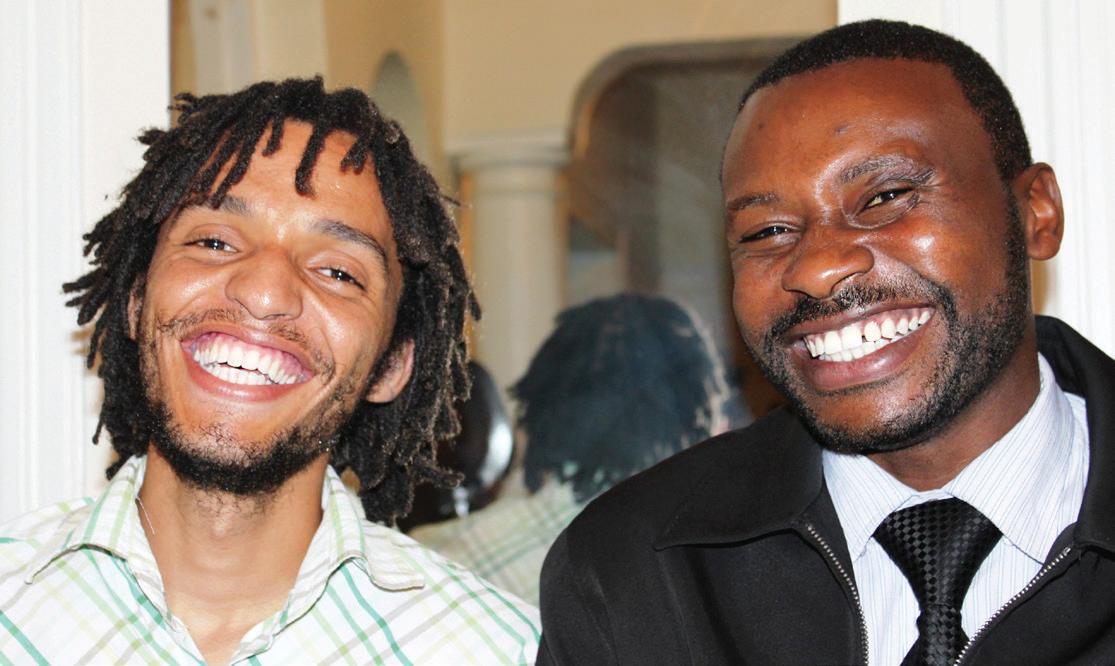
Some criticise Keller for not resembling the stereotypical American evangelical, especially because of his political inactivity and “excessively” evangelistic approach.
Keller’s lack of political partisanship and his evangelistic focus both stem from a desire simply to preach the gospel, says Hansen – to “strip away the things that make people upset at Christians that are not the gospel, so that they can be properly offended by the gospel!”
Perhaps Keller’s most resonant presentation of the gospel is his explanation of Luke 15:11-32. Often called the Parable of the Prodigal Son, Keller thinks of it as the parable of two sons, with both communal and individual implications. Some people and some churches incline toward the older brother, others toward the younger.
“What’s interesting,” Hansen notes, “is that Tim defies that logic. He is himself both [sons].” Before his conversion, Keller abandoned the beliefs and values of his overbearing mother. But he is also a textbook rule-follower, known by his family members as ‘Boy Scout.’
“I think you see both dynamics in his life,” Hansen continues, “which has allowed him to speak not only in New York to the Wall Street banker, but also to the artist. That’s not something that a lot of other people have been able to pull off. But it’s more effective with somebody who really has a sense of their need for grace in both directions, because of their licentiousness, but also their legalism.”
Hansen sees Keller’s introspectiveness as helping hearers “to understand themselves in light of the gospel – the severity of their sin, but also the overwhelming goodness of grace.
“I think if we wanted to talk about his one legacy,” he concludes, “he’d probably want us to read his book The Prodigal God – just that basic story of grace.”
Tim Keller, the man
In a book about C.S. Lewis and Jonathan Edwards, who does Hansen credit as the greatest influence on Keller spiritually and intellectually? Kathy Keller.
“I suppose at one level, it wouldn’t be novel for me to say that somebody’s spouse was their biggest influence. But I don’t think that explains any of the distinctiveness of Tim and Kathy together.”
The Kellers got to know each other and got married during seminary – an uncommon combination of two people independently on the same intellectual and ministry track. But Hansen emphasises, “how much of a dynamic figure [Kathy] is on her own.”
Not growing up in an evangelical home, the only Christian literature Kathy knew was C.S. Lewis. In fact, she thought she was his only fan. At 13, Kathy was one of the last people ever to correspond with Lewis, writing to encourage a man she thought was an unknown author. A couple of years later, she travelled to his house and spoke with his brother. Soon after that, John Guest, a significant figure in the Jesus Revolution, called Kathy the most brilliant youth organiser in Pennsylvania during a huge youth revival in the area.
Hansen chuckles approvingly at Kathy’s boldness when she told Tim, “Once you’ve broken up with the other girl, we’re either going to be an item or we’re not going to be friends. But I’m not going to sit around and wait for you to figure this out.
“She’s always had that ability to help, assist and support, but also to challenge in ways that are really beneficial to Tim and compatible with him,” says Hansen.
Discussing personal relationships, Hansen also pulled back the curtain to describe Keller’s impact on him. Hansen first met Keller in 2007 and began working with him at The Gospel Coalition in 2010, where Hansen now serves as Vice President for Content and Editor in Chief.
TRAINING TOMORROW’S LEADERS TODAY
4 Join us for a FREE webinar as we explore the value of culturally intelligent Christian leadership. Or to find out more, go to: localleaders.org.au
year we help train more than 30,000 Christian leaders for ministry through partnerships with local Bible Colleges. There’s no better time to invest in the next generation of leaders in the Majority World.
Each
Tim Keller (left) with Collin Hansen. Image: The Gospel Coalition
“Timothy Keller: His Spiritual and Intellectual Formation by Collin Hansen is available from Koorong.
Before the recent death of Tim Keller, Eliot Kern spoke to the author of a new book about the formation and legacy of this giant of the faith.
Thinking of your family’s future? Consider Life Insurance to help protect the ones you love
Trauma cover
How do I start?
Managing money: Five ways to spend like a disciple
Yoël Frank
Give more” is something that you’ve probably heard in church.
Imagine if you could invest in your local church to convert part of their property for commercial use, generating rent for the church and stable financial return for your investment.
Each family differs, but it’s fair to say there is usually one common similarity, the wish for financial protection.
Helping protect your loved ones if you were to pass away or to suffer a serious disability or illness can be an important consideration when planning for your family’s financial security.
So, what Life Insurance covers are available?
There are a range of covers which can help provide peace of mind.
Life cover
You can help protect your family with a defined level of cover. A lump sum cash payment is made to your nominated insurance beneficiaries or estate in the event of death or diagnosis of a terminal illness#.
Total and Permanent Disability (TPD) cover
With NobleOak, this is usually available as an option with Life cover. You receive a lump sum cash payment if you’re unable to ever work again because of sickness or injury occurring after the cover starts.
Trauma cover provides a lump sum payment if you suffer from a critical illness. Cover for 37 critical medical conditions listed in the PDS .
Income Protection Insurance
Receive monthly payments during your benefit period to replace some of your income whilst you can’t work as a result of suffering a Sickness or Injury. Always check the terms of cover to see what benefits may be payable.
Considering Life Insurance?
Each person’s needs are different. The following are some of the things to consider in your decision to attain cover:
• Families with children: having the financial means to fund children’s education, and maintain the lifestyle they’re accustomed to, if you pass away or are unable to work.
• Those who have a mortgage and other debt: ensuring the mortgage repayments can be made and other financial commitments are met.
• Older Australians: from your 50’s and through your retirement years, you can continue to help protect the lifestyle you’ve worked hard for.
You may wish to consider NobleOak, an Australian-based Life Insurer with 145-year heritage. NobleOak has a rich history built on helping Australians in their time of need, guided by the values of integrity and benevolence. Scan the QR code below and get an online quote.

Important Information
This is a sponsored content piece from NobleOak Life Limited. Cover available to Australian residents only. The Target Market Determination for NobleOak’s Premium Life Direct insurance is available at www.nobleoak.com.au/target-market-determination/
NobleOak Life Limited ABN 85 087 648 708 AFSL No. 247302 issues the products. This information is of a general nature only and does not take into consideration your objectives, financial situation or needs. Always consider the Product Disclosure Statement (PDS) to see if the product is right for you. The PDS is available on our website www.nobleoak.com.au
#Terminal illness benefit To be eligible for this payment, you must be diagnosed as terminally ill with an illness that is likely to result in your death within the next 24 months. The diagnosis must be made by two medical practitioners, one of whom is a specialist in the field. NobleOak will pay 100% of your life cover amount following diagnosis, instead of upon death.
But thousands of ads every day tell us to spend more.
Pick up a personal finance book and it’ll probably tell you to save and invest more.
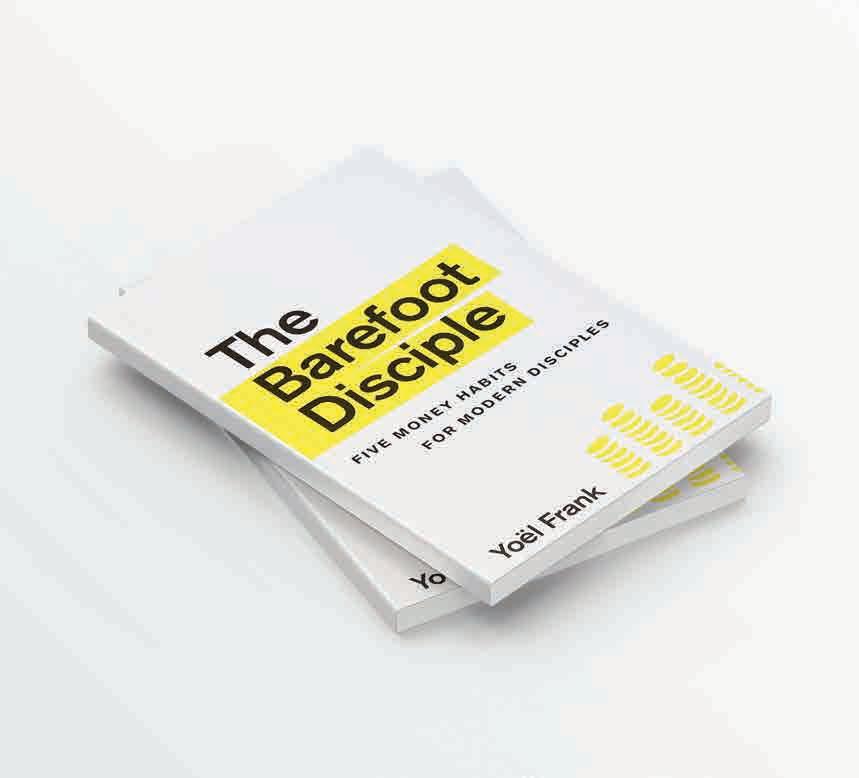
It’s all pretty confusing. How should a disciple spend, save, give and invest?
How do we apply Jesus’ teachings about money in a 21st-century consumer culture? That’s the $2.6 million question (the lifetime earnings of an Australian median income earner).
Despite being the wealthiest generation ever, we don’t seem to be doing well in other ways. Anxiety and depression are at all-time highs. Church giving levels are at record lows. Australia’s household debt is among the highest in the world. Devices, designed to drip-feed us dopamine, have us addicted. We’ve got medicines, machines and mobiles –which the “rich young ruler” Jesus speaks to in the gospels couldn’t have dreamt about – but we certainly don’t feel rich.
Every day our culture has discipled us in how to be consumers, not followers of Christ. It’s even become part of our identity.
But fear not, all is not lost. We may not be able to change our culture in one fell swoop, but there are some steps we can take. In this article we’ll cover five ways to do that.
How to manage your money as a disciple in modern Australia:
1. Pay yourself like your pastor (from consumer to minimalist)
Most pastors get paid ... wait for it … a fixed stipend. It’s a modest, living wage that allows them to focus on making disciples in their community. It’s the way a steward (as opposed to an owner) would get remunerated.
The question is, should the rest of us (who aren’t in paid ministry) live in more material comfort than them?
If God is our shareholder, shouldn’t he get the extra profits if our marketable skills earn us additional income?
Paying yourself like a pastor (or ministry intern) will mean setting a spending benchmark that is objectively modest and where your shareholder (God) gets first dibs on income above that. For those without dependants, minimum or median wage is a great benchmark to start with. It’ll still get you in the top 10 per cent of global income earners (and you’ll still be objectively wealthier than that rich young ruler bloke Jesus spoke to in Luke 18!).
This strategy is a safeguard the “future you” needs to protect you from lifestyle creep – the steady drift, over time, to become more sophisticated consumers, rather than more mature disciples.
It’ll also help create something personal financial types would froth at the mouth over: margin. Margin to live, margin to give, margin to invest.
Oh, and if you splurge on yourself now and then, no biggie. Just make sure you love your neighbour as you love yourself by matching your splurge with donations to worthy causes.
2. Get some recurring giving going (from minimalist to giver)
We all know someone who has a minimalist lifestyle, but they aren’t necessarily generous. The stingy saver, squirrelling away for … (insert your blank) doesn’t really feel like what we’re called to be.
Getting paid like a pastor can help you move from consumer to a minimalist, but without giving, it’s not yet discipleship.
Jesus said, “Where your treasure is, there your heart will be also.” (Matt 6:21) So, until we’re giving habitually, we haven’t yet broken the grip of greed on our heart.
If you’re new to this, you’re probably going to want to give to a cause that leaves you feeling good – something like Compassion child sponsorship. For just $50 a month, you can materially improve a kid’s life. You’ll also lock yourself into a giving loop –kind of like a Netflix/Spotify subscription but good for your soul.
Once you’ve got that going, a recurring transfer to your local church is a great follow up. When it comes to money, habits often drive our behaviour more than theology, so starting this habit is super important.
3. Spend missionally (from giver to missional spender)

Most people spend most of what they earn in their lifetime.
We can’t really stop spending on essentials, but we can change who we spend with.
If you’re getting lunch with a friend, do you go to a multinational chain or a cafe run by a Christian family?
We usually think of spending as a guilty pleasure, not as something that can bring positive impact. However, spending money with local Christian businesses can actually create a multiplier effect far greater than the amount spent – especially if the business is run missionally and they, and their suppliers, give 10 per cent to the Lord first.
So next time you’re looking for a service, check out your local Christian business directory (your Christian radio station should have one). Or when you’re eating out, think about spending with someone for whom it means something.
You could do more mission with your spending than you realise.
4. Get your super dollars creating positive impact (from secular investor to missional investor)
Imagine if you could fund a TV miniseries on the life of the disciples that reaches over 300 million people (like The Chosen) and gives you a good financial return.
We’ve been led to believe that investing is a purely secular exercise. But these are all real-life examples of impact investments with both financial and spiritual outcomes.
Investing impactfully is intentionally directing your investment dollars towards businesses that solve social or spiritual problems, while generating financial returns.
Our super funds are awesome potential impact investment funds right under our noses. However, after Christian Super’s merger with Australian Ethical Super last year, we’re waiting for a new Australian fund to get behind this vision.
5. Be a savvy servant (from money avoider to savvy servant)
Jesus once told his disciples to “be as wise as serpents and innocent as doves.” (Matt 10:16) But, all too often, not idolising money ends up looking more like money avoidance.
Sticking our heads in the sand won’t help us live well with these modern money dilemmas: Should I buy a home or rent? What about budgeting? How does the share market work? Should I leave my money in the bank? What’s the crypto craze about? So, text a buddy and ask them to read a book with you or do a course together.
Wealth with Purpose and Christians Against Poverty both have good courses. If you want to roll the dice on an indie Christian practical guide, I hear The Barefoot Disciple: Five Money Habits for Modern Disciples has a few things to say about the topic!
That’s a wrap of five ways to manage your money as a modern disciple. May these tips help you find the narrow path that leads to life with your money.
Yoël Frank is a former accountant turned entrepreneur and Christian content writer hailing from Western Australia.
7
“ Yoël’s Book The Barefoot Disciple: Five Money Habits for Modern Disciples is available from Koorong.
NOBLEOAK SPONSORED PAGE
Israel’s third king is revealed in King Solomon’s Empire
“This book... contains a masterly grasp of the essence of Solomon.”
Rev. Morris M. Dutch • Church of Scotland
“This book... will help the reader understand not only the many mysteries of Solomon as a biblical writer, king and philosopher, but of his spiritual world influence both for good and for ill.”
Clay McLean • President • Nightlight Inc
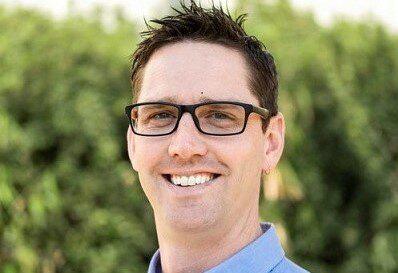 McLean Ministries • North Carolina
McLean Ministries • North Carolina

A new biography of Solomon, his rise to power and his mysterious, controversial rule. The authors cover the king’s life and examine all his writings in scripture, his focus on passionate love, and his cultural background.
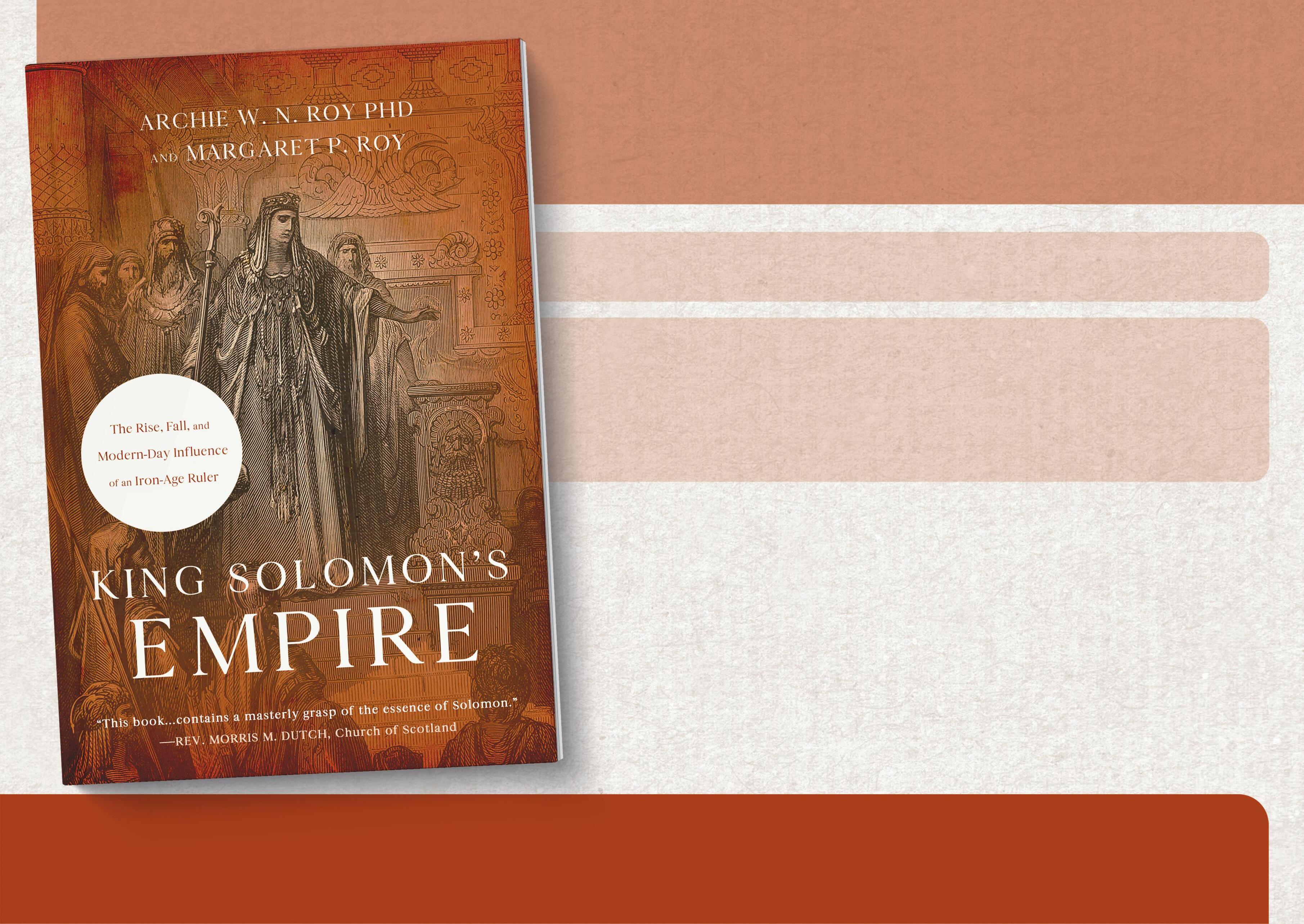
Solomon’s kingdom and legacy are also viewed in relation to the present day, the ‘end of the age’ and the true Messiah’s rule.
“
Sorry I’m late!” Anatoliy Raychynets begins. He explains how an overnight air attack hindered him and many around Kyiv, Ukraine, from using electricity. This seems like a reasonable excuse!
After a few minutes, an alarm blares and Anatoliy holds his computer out the window for me to hear the air sirens and watch the citizens walking to bomb shelters.
“It’s an everyday thing,” he explains. “That’s why people are tired.”
What is it like being with the soldiers?
It’s very hard, to be honest. We have been working as chaplains at the hospital where ambulances first take soldiers from the battlefields. It’s hard to see so many ends of lives – the last minutes, when they’re asking, “Can you lead me in prayer? Can you read the Bible for me?”
who is connected to God can be a provider of his light in this dark world.” For wartime, this is a great encouragement that I am reading and reading again.
What is your hope for Ukraine?
Available from Amazon as ebook, paperback and hardcover, and from Koorong
and Dymocks.
Publisher: Ambassador International ISBN (PB): 164960341X
As Deputy General Secretary of the Ukrainian Bible Society, Anatoliy has been providing support and Bibles to churches, pastors, soldiers and residents since Ukraine was invaded in February 2022. He gives the following update for Eternity readers.
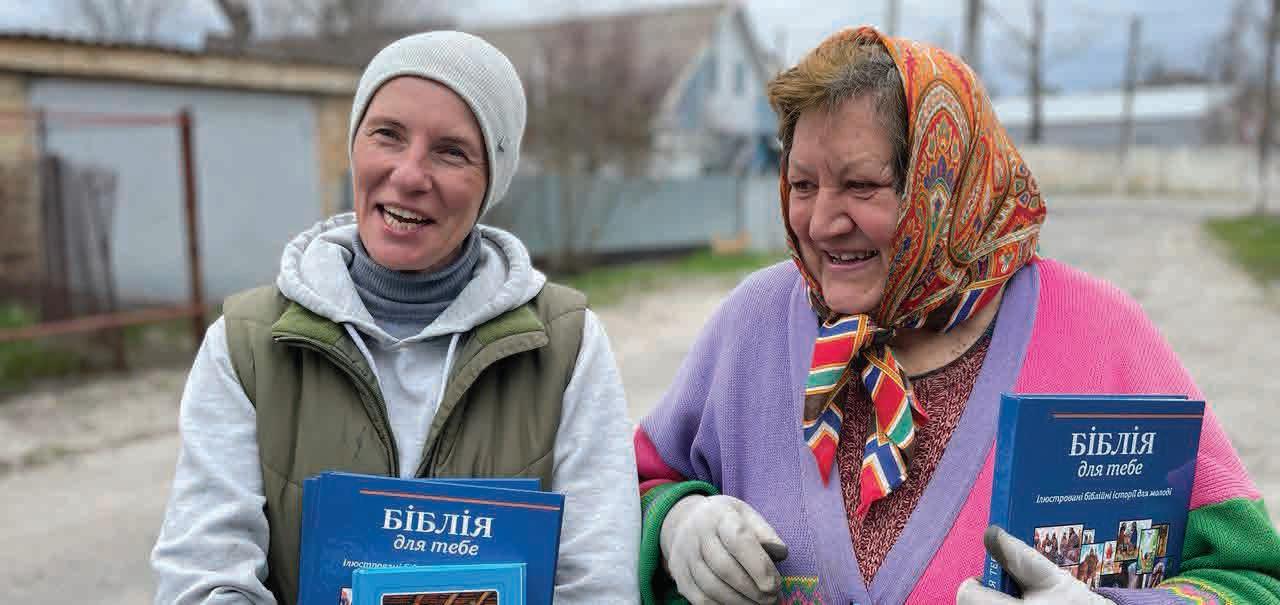

What is daily life like at the moment?
Right now, it is 9am, so school begins. When you have a siren, you need to take your kids back home, or they’ll be in a basement for several hours. So you never know how a day will look. Up and down all the time, changing plans. We are learning to live in a totally different reality.
What help do you need most?
First of all, we need more Bibles. Since the war started, we have distributed more than half a million Bibles. It’s a very big opportunity and, at the same time, a challenge to have enough Bibles for several hundred thousand soldiers. It’s amazing how they are open to receiving Bibles. We also have millions of displaced people just in West Ukraine. You meet people who say, “I’ve never read a Bible; I know nothing about the Bible.” And they would like a copy. So we have a big Bible distribution this year and in the coming months, we are printing more. This is our number one need: more Bibles.
It’s very precious to do this work, to be with them, to see how the Bible becomes alive for people and how they meet God. But it’s also very difficult, because this is a human being’s life. They have children, a wife, parents – beloved people who are waiting and praying for them. So that is the heavy part of this ministry.
Where have you found hope in that heaviness?
Last week I called a chaplain before departure from Kyiv and asked him, “Dear pastor, what do you need most?”
He said, “Bring us hope.”
I said, “We have 3500 books full of hope.”
I also can tell you story by story how many miracles we, Christians and non-believers, experience, because people see that “only God could save my life in that situation.” Something special has happened with Ukraine. We are going through “death valley” as a nation, but at the same time we see that God is very close to us (Psalm 23:4).
Where in the Bible have you found comfort?
I am reading and rereading the first three or four verses of the gospel of John, where we read that light came into the darkness and darkness never again had victory over the light. We know who is the light, who brings light and who can also make us lights in this dark world. In this horrible war I am saying to the soldiers and to people I meet to distribute Bibles, “There is so much need for more light, and everybody
In Ukraine we see the development of the situation and we realise that only God’s miracle can stop the war. On a diplomatic level, it’s almost impossible. So we pray and hope that God somehow will end this war. Many people are hurt, with lost family members. So we have a huge work to do in trauma healing and Bible distribution.


But I think our nation will be very different from before the war. I think churches will be closer to God. Many new people will find, and are already finding, God as the source of life.


Then we will share God’s miracle with the rest of the world. We will bring back God’s glory to people who have been praying, to tell them the stories, to tell them that prayers matter – that your prayers have been encouraging us, bringing hope to us and now we want to bring joy and thanks back. You are helping us from Australia, from New Zealand, from the United States, and this is our common ministry: to bring the living light from the living God to people.
Youthworks College offers both the Diploma and Advanced Diploma in Theology or Ministry. Study at our Newtown campus or in an online classroom with an experienced tutor. When ministry gets busy, it’s easy to neglect who we’re raising up to keep doing effective children’s and youth ministry for the next year and beyond. Youthworks College partners with churches to train both the old and the young to do effective gospel ministry to children and young people. So will you send? And will you go?
(02) 8093 3400 college@youthworks.net youthworkscollege.edu.au
To donate to Bible Society Australia’s emergency response for Ukraine, scan the QR code.
9
‘Our number one need: more Bibles,’ says Ukrainian leader
Eliot Kern
Images: Bible Society Ukraine
Youthworks College is an affiliate of the Australian College of Theology, CRICOS Code 02650E.
The Asbury Revival had been going for a week when documentary filmmaker Jon Snyder arrived.
He’d jumped in the car that morning – on 14 February 2023, Valentines Day – after hastily bidding his wife and kids goodbye, and had driven six hours to arrive in time for evening worship.
For Jon, the trip was not out of FOMO or mere curiosity about the extraordinary events taking place at the US university following a regular student chapel service that never ended. Instead, Jon believes he was sent to Asbury by the Holy Spirit.
“I got there around 5:30pm,” he tells Eternity, “and one of the first things I noticed was that there was already a line going out the door of the auditorium and down the street. There were a lot of people waiting to get in.”
While many in the line recorded on their smartphones, Jon began to pull out his professional equipment. He was there to do the job that God had told him to, without any time for preparation or planning.
“The mandate, the directive that the Lord had given to me, was to tell the story of what he was doing over at Asbury,” Jon explains.
“I wasn’t coming in there with an agenda. I really just wanted to let the story speak for itself.”
With the light beginning to fade, he sent his drone soaring above the campus and over the line of people.
(By the time Jon left Asbury, three days later, the queue to get into the chapel snaked all the way around the block.) When it was his turn, Jon edged his away inside the crowded auditorium with camera in hand.
“You walked in there and you heard just chorus after chorus of everyone there joining in singing together,” Jon recalls.
“What the Holy Spirit was doing en masse to so many people ...” he pauses, scrabbling to find the right words, “I mean all you had to do was be there. Almost any time you looked towards the altar, there were college students, some of them weeping, some of them joyfully laughing. There were just dozens of encounters happening at any single moment towards that altar.
“God was moving and he was touching the hearts and lives of people, and that’s what I saw.”
Over the next few days, Jon interviewed around 20 people, including students, staff and visitors, about their experience of the “Outpouring.” There were reports of students coming to Christ for the first time or coming back to faith, and of healings – emotional, physical and from addictions. But the one thing that interviewees kept reporting was a sense of unity.
“You heard so much about unity,” says Jon. “The students were just driven into unity. Apparently, that whole experience was really healing to the student body that had experienced a lot of division.
“So many people had experienced a heart transformation during that time. And that was just the student body.”
Jon notes a similar feeling of unity among visitors to the campus.
“I met a lot of people who were from all over the States ... People who were getting in cars and minibuses, and coming from 8, 10, 20 hours away. I met some people from Canada who’d come.
“So many people visiting were hungry. I’m not really sure what their motives or objectives were for coming out [to Asbury], but it was like everyone was of one heart and one mind. There was such widespread unity – you felt it.”
Small film, big impact
Jon – along with the help of his wife and video producer, Kaye – managed to capture many of these experiences in a nine-minute documentary. This film has now been viewed over 182,000 times. For Jon, it has completely confirmed his calling to document the events at Asbury.
“Aside from capturing the authenticity of the story at Asbury, I really felt like God was saying to me that this film was going to be used as a catalyst for other colleges, other college students, or really anyone who wants to grab a hold of what God was doing in Asbury but couldn’t go out there themselves to see it. And that this film would give them permission to pursue God radically, in a similar way that the kids at Asbury did.”
So is this revival?
Since the Asbury Outpouring was officially drawn to a close by the university on 24 February, many have questioned whether this is the start of true revival in the US and perhaps even throughout the world.
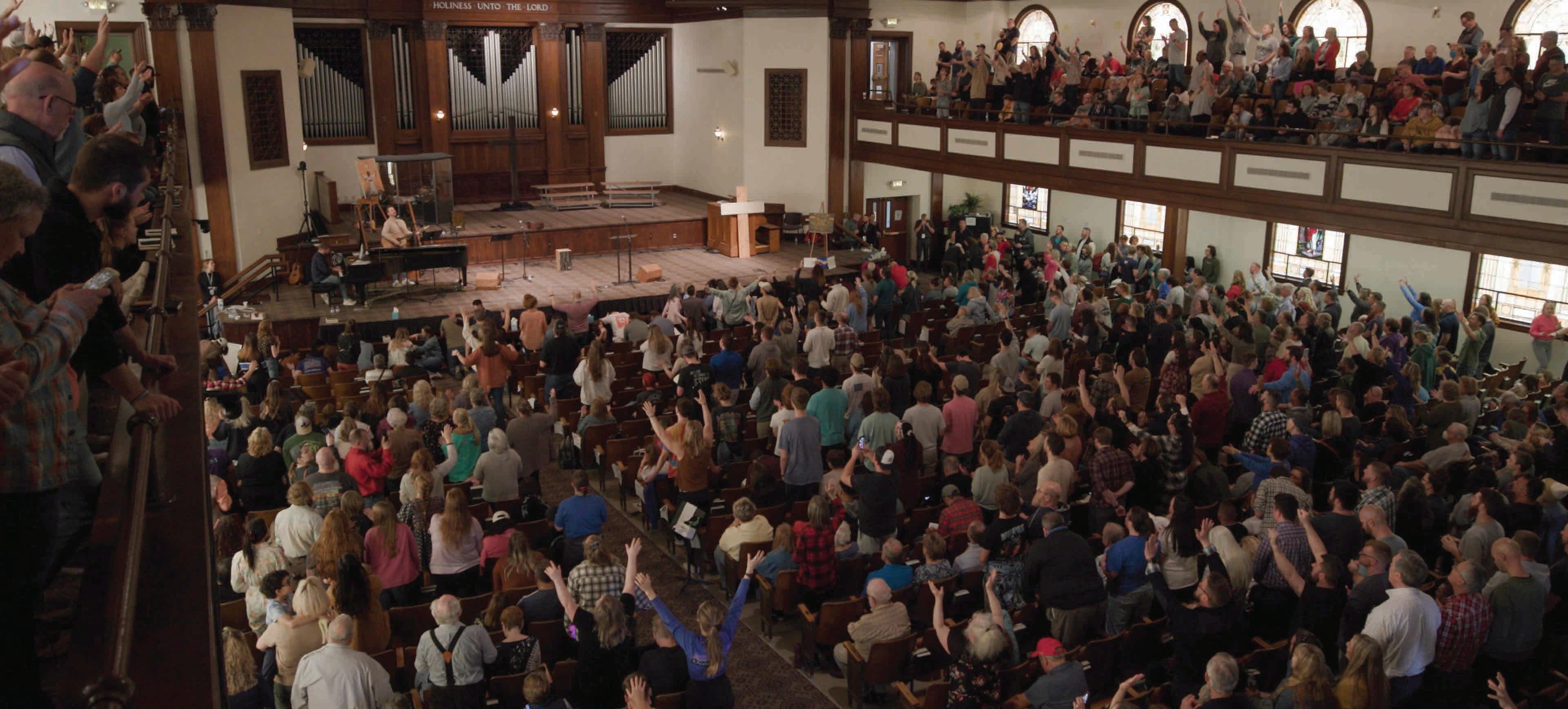

“There’s nothing special about Asbury in the sense that what God did there, he would also do somewhere else. What he’ll do for one, he’ll do for others,” Jon reflects.
While he’s cautious about labeling the awakenings at Asbury and other US unis as revival, Jon does see them “like Braxton Hicks contractions”. “It feels like to me that God is moving, that God is stirring his people, and the people are responding – they’re hungry.
“I’m part of Facebook groups and every day there are reports of people, congregations or other bodies who are just pursuing God and having
“The people there were in one heart, one mind, and God’s response was, in a large part, because of the unity that was showcased there.”
“the Spirit following them, similar to what was happening in Asbury.
“So it feels like this is the precursor. I’m not going to come out and say that a big revival’s happening next month, next year, or whatever. But I feel like it’s the start of something.”
For Jon, whether Asbury sparks revival or not, the main take-home lesson is this: the need for God’s people to come together in unity to worship him.
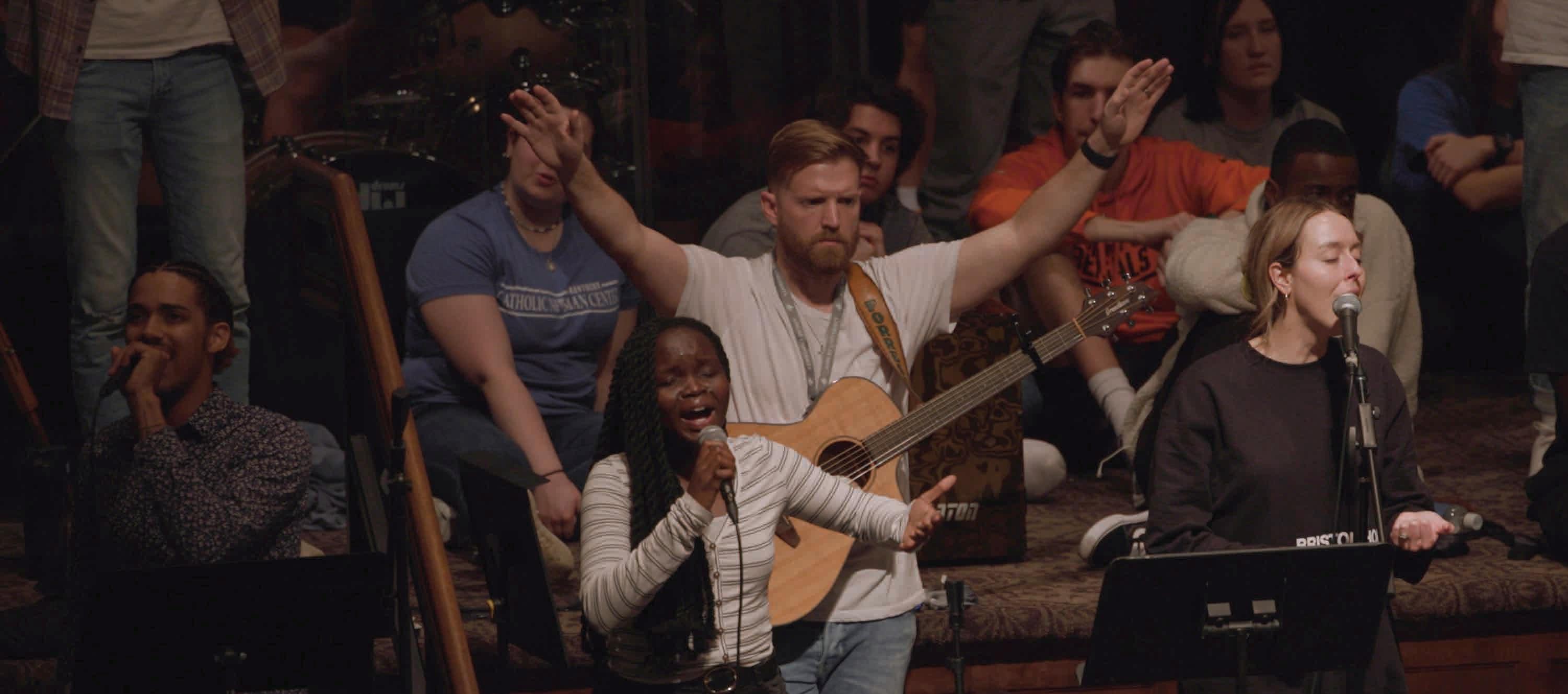
“What do we learn from what came out of Asbury?

It’s just this: God’s people were coming together just for the sole purpose of worshipping him and God was pouring out his Spirit indiscriminately on people. It’s not like he was pouring out only on the charismatics ... There were people there from all different denominations. And God was pouring out [his Spirit] indiscriminately. People were having experiences and encounters everywhere. I wish that that was prevalent outside of Asbury as much as it was inside.
“The people there were in one heart, one mind, and God’s response was, in a large part, because of the unity that was showcased there.”
10 11
Worshippers cram into Asbury’s auditorium.
Students worship at Asbury University. Images: Jon Snyder Asbury
University.
Asbury student Alison Perfater is interviewed for Jon’s documentary.
Rebecca Abbott
Inside the Asbury Revival:
‘Why God sent me and what I learnt’
Do we need revival today?
Aziza Green explores the what, why, how and when of revival.
When a small chapel service at Asbury University sparked a two-week outpouring of the Holy Spirit earlier this year, it got a lot of people talking about revival. But revivals divide as much as they unite, attracting the attention of seekers and critics. Eternity sat down with three ‘revival experts’ – Professor Stuart Piggin (Conjoint Associate Professor of History at Macquarie University), Pastor Mark Sayers (Senior Leader of Red Church in Victoria) and Pastor Jemima Varughese (Senior Associate at multi-site megachurch, Kingdomcity) – to learn about revival and what it means for the 21st century church.
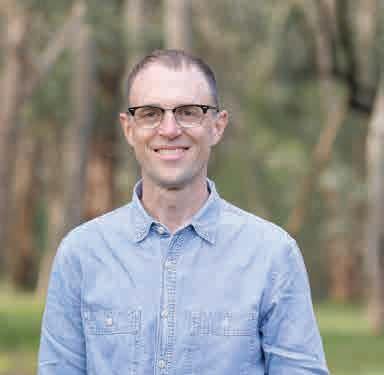
Prof Stuart Piggin is the author of seven books, including 2019 Australian Christian Book of the Year, The Fountain of Public Prosperity: Evangelical Christians in Australian History 1740–1914. He came to study revival seemingly by accident in the 1970s while researching the 1902 Mount Kembla mining disaster. Piggin stumbled upon a local newspaper story about an extraordinary religious event that also occurred in 1902 in the Illawarra region.
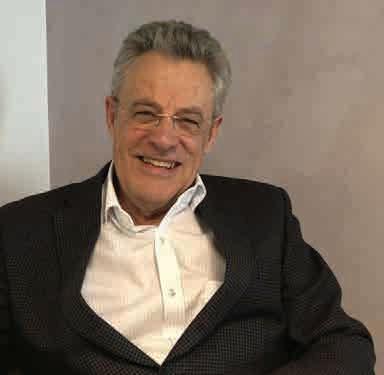
“In all the mining communities, which dotted the coastline like beads on a string, there was this blessing and hundreds of people were brought to the Lord. I thought, this is amazing. What’s going on here?” He began finding revivals everywhere, particularly in the 19th century and in Methodist circles.
Wanting to understand the theological underpinnings, Stuart turned to Jonathan Edwards, the American theologian said to be the church’s finest theologian on revival. Edwards described revival as “waking up to reality”.
“Edwards thought that reality was greater than truth. Reality is the world as it is made and perceived by God,” Piggin explains.
Edwards noted there is a sudden realisation that one’s own perspective is not God’s perspective. “That’s why revivals are very dramatic and often involve emotion. It’s a bit of a shock to discover that the life that you’ve lived, even as a Christian, has been suboptimal, less than the reality which God has intended for us,” says Piggin.
The implication is that the church, believers, were asleep. Tired. At times, exhausted.
Pastor Jemima Varughese remarks that “revival is about bringing what was dead back to life.” Varughese is a voracious student of the history of revival, which continually stirs her own passion for a move of God.
“I look at all that and pray, ‘God, do it again. Do it in me. Do it in our cities, do it in the church today,” she says.
Varughese is passionate about Christians, especially children, learning the history of revivals. Kingdomcity have an online school for students (K–12) located anywhere around the world and have included a curriculum on revivalists.
The characteristics of revival
“Revival is a concerted assault on the powers of darkness. So, there is spiritual dimension,” says Piggin.
As people experience God’s presence during a revival, there is a shift of focus away from the self and onto God; moving a person from self-reliance to God-reliance. This sense that “with God, all things are possible” (Mark 19:26) invigorates people, revitalising churches and communities.
One of the most important contemporary Australian revivals was among Aboriginal people, beginning in Elcho Island in 1979 with Rev. Dr Djiniyini Gondarra. “Aboriginal revivals were critical because they empowered First Nations people for the hard work of claiming their identity, which enabled them to survive and thrive in this world,” says Piggin. He suggests that there is a strong link between the 1979 revival and First Nations’ land rights developments. Another great revival in Pinnacle Pocket released scores of Aboriginal pastors into ministry.
Pastor Mark Sayers notes that revivals have always been contagious, and now with digital media, there’s a virality like never before. This can be seen in the outpourings at other universities and colleges in the weeks following the Asbury Revival.
Sayers began studying revivals after a period of difficulty and personal transformation in his spiritual life. He has observed that “across Canada, New Zealand, the UK and Australia, there are small fires all over the place. Like a bushfire, revival takes off when the environment is right.”
Revival often comes in times of crises, Sayers adds, saying, “We are facing multiple crises right now. Emerging generations are losing their belief in some of the promises of worldly culture.”
This link between revivals and crises may be one reason why revivals are not long-lasting. Piggin suggests that revivals don’t last because “through revivals, God equips us for a purpose and to get on with it. Once we’re refreshed, we can start again.”
What precedes revivals?
There is no formula, but Piggin has observed three things which have always preceded revival:
1. Unprecedented prayer for revival;
2. Unusual unity among Christians;
3. Heightened faith and expectation for a move of God.
“Whenever you study a great move of God, you’ll find that there was a group of people who were praying beforehand,” says Varughese. She notes that Evan Roberts (Welsh Revival, 1904-1905) had prayed for revival since he was 13 years old. “I haven’t heard of a revival where God’s just turned up and there’s been no hunger. There’s got to be a hunger. There’s got to be prayer.”
Piggin notes that Methodists were particularly expectant for revival. “They expected revival and that’s why they prayed for it. Methodists tended not to hold evangelistic meetings until the expectation was high, till they were confident that God was in this,” says Piggin. Pentecostals, as the heirs of the Methodists, have inherited the godly habit of expecting revival.
Where to from here?
In 1889, Melburnian minister John MacNeil started a prayer meeting with four other ministers on Saturday afternoons. “The Band”, as they called themselves, were joined by ministers from other denominations praying for “the big revival”. Their longing for it deepened in their hearts. They determined to pray without ceasing until they saw it, at times spending whole nights in prayer. Later that year, MacNeil invited every minister in Victoria to a day of prayer – 700 came.
By 1902, 200 churches (80 per cent of those in the region) came together to pray and prepare for a great evangelistic gathering for which they had petitioned.
MacNeil had passed on to heaven but “The Band” and 30 home prayer meetings, started by a Mrs Warren, grew to 2100 meetings.

By the time American evangelist R.A. Torrey arrived in Melbourne in 1902, thousands were eagerly awaiting an outpouring of the Holy Spirit. At the height of that revival, 250,000 people (of 1.2 million in the region) attended across many simultaneous meetings in one night.
Revival “begins in a hungry few. If you’re a minister, gather the hungry people in your church. All you need to do is open a regular space for prayer and invite people to come,” encourages Sayers.
Sayers suggests that now is the time to reach out across the denominational divides in your local community. “Prayer is something we can all agree on. Gathering to pray with people in your area, that’s what our church is doing.”
How do we test if a revival is a genuine work of the Holy Spirit?

Even Jonathan Edwards received opposition when he talked about revival in his book The Great Awakening. For Edwards, a work of the Spirit is more than emotion or a change of mind – it changes the affections; our strongest inclinations. It changes what we love most and our will. He had a sixfold test to distinguish a genuine work of the Spirit of God:
1. It makes you love God more; God for himself –his glory, power majesty and love – rather than what he can do for you.
2. It makes you love Jesus more and recognise what he did on the cross for you.
3. It makes you love the Bible more
4. It makes you love Christian doctrine
5. It makes you love other people more

6. It makes you love the devil less and sin less This increase in love always spills out into the community. In the 1902 Illawarra revival there were 2735 conversions throughout the coalmining villages – 15 per cent of the region’s population. There were reports of miners doing more earnest work, repaying debts and there were less children born outside of marriage.
“I read in the local press that the pit ponies [mining horses] had stopped working – they didn’t understand the commands of the miners because they had stopped swearing,” notes Piggin. The great revivals have always resulted in a decline in national crime and immorality. The same is true of the Billy Graham Crusades in Australia in 1959.
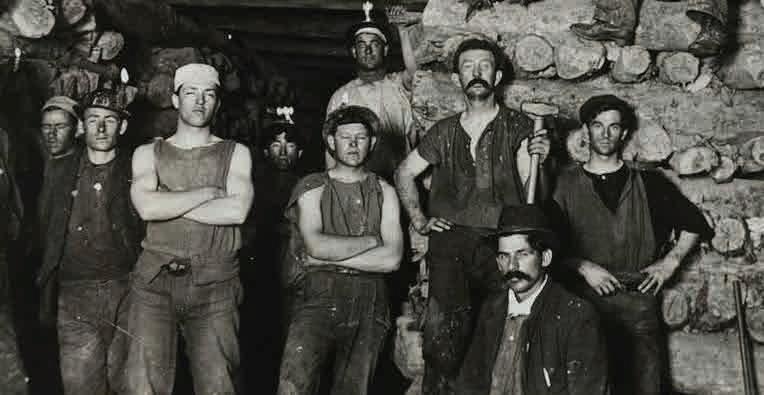
“You look at The Great Awakening, that overflowed into social reform – everything from slavery, to the creation of the RSPCA. Revival increases people’s love for Jesus, which then flows out into the world,” says Sayers.
A work of the Spirit is more than emotion or a change of mind ... It changes what we love most and our will.
Different flavours of revival
Some revivals are characterised by amazingly gifted preachers like George Whitefield, the Anglican preacher and founder of Methodism, whose dramatic preaching style sparked the American Great Awakening movement. American revivalist preacher Jonathan Edwards would give you 12 reasons why you shouldn’t want to go to hell. By reason number five, you were totally convinced. Billy Graham, with his passionate, energetic preaching style that led to his nickname ‘God’s Machine Gun’, led thousands towards Christ.
In the Welsh revival, however, there was no preaching. Evan Roberts would encourage his female singers to sing, and he would hardly say anything. Music and worship have a lot to do with revival, notes Piggin.
“With Asbury, [God] didn’t use production, he didn’t use lights, he didn’t use screens to attract that generation of young people, he used repentance and prayer. It’s just another side of him,” Varughese says.
In the Azusa Street Revival, which started in Los Angeles in 1906, God used African-American pastor William Seymour while racial segregation thrived in the US. The effect was to renew and unite diverse people. Eyewitness Frank Bartleman noted that “the ‘colour line’ was washed away in the blood.”
alone. We need to work together; we can’t stand alone. We all have different flavours and that’s good because people are different.”
She continues, “We’re coming into a time in the world where if we don’t have prayer as part of our life, or a core part of our church, we probably won’t survive. In my church we have really ramped up our prayer – more prayer groups, prayer teams praying around the clock.”
Piggin has often wondered why Edwards used the word “surprising” in his book A Surprising Work of God, when there had been revivals before in his father’s church and his grandfather’s church. “I was interested to find that Edwards never used that word to describe revival, it was put in by his editors,” says Piggin.
“We’ll always find [revivals] remarkable. We’ll always wonder at them, praise God. But rather than be surprised by revivals, we should be surprised by their absence,” he asserts.
“They are for the refreshment of the church, which the church desperately needs. And for the relief of problems in the nation, which the nation desperately needs. It’s a fearful time. We should be surprised if we don’t enjoy and experience a revival,” says Piggin.
Varughese concurs, “The church down the road is not competition. There is so much need in our communities and it’s too big for one church to do
Revivals are not taught, they’re caught. When you learn about a revival, it can spark in you the same desire for a move of the Spirit. That’s why it’s important to talk about them, read about them and pray for them so that perhaps we might come together and cry out, “God do it again. Do it in our city. Do it in me.”
12 13
“
“
From left: Professor Stuart Piggin, Pastor Mark Sayers and Pastor Jemima Varughese
Billy Graham: Erling Mandelmann / photo©ErlingMandelmann.ch
Miners: State Library of South Australia, Wikimedia Commons
Image: Terren Hurst / Unsplash
Celebrating 250 Faith Stories
Naomi Reed
Recently, I put down my pen after writing the 250th faith story for Eternity! It’s been an amazing, humbling journey so far.
I started in September 2019. I thought it would be a wonderful idea to capture hundreds of testimonies – a huge variety of stories of people coming to faith in Jesus, from every kind of background. I began by interviewing my obliging (and easily persuaded) friends. I gave them a nice cup of tea and we chatted. Mostly, I already knew their faith stories, so writing them down felt easy, or like eating sticky date pudding in the winter – rich and satisfying.

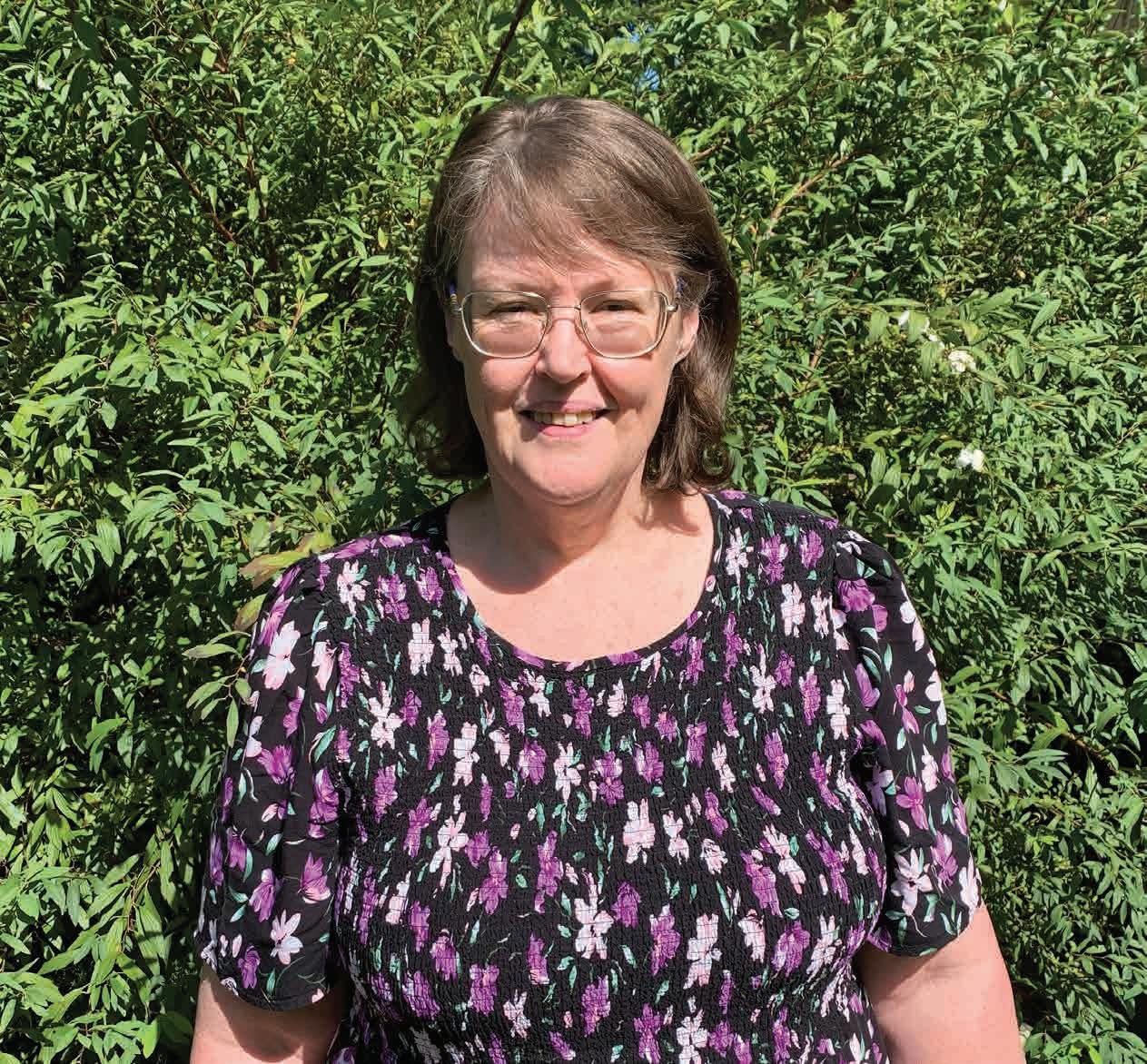
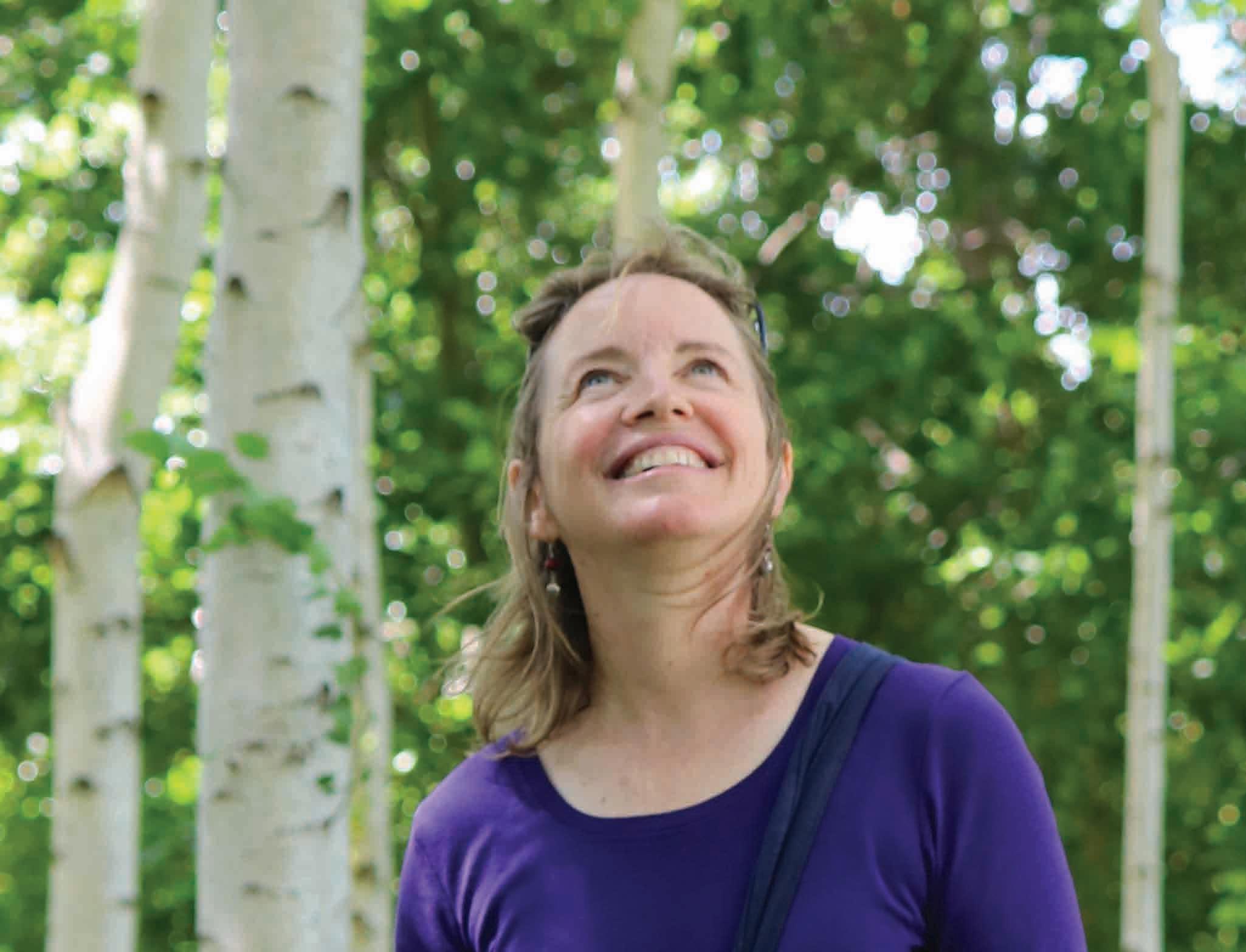
After 20, I remember I told Darren, my husband, that I had the best job in the world, and wouldn’t it be amazing if I could write 1000 faith stories?
Finding faith in different places
Upon reaching 250 stories, I read them all again.

I noticed that the interviewees have come from 33 countries and six continents. They’ve included every age bracket. No wonder I’ve found it fascinating!
Interestingly, of the 250 stories, roughly 20 per cent of interviewees said they have known about Jesus since childhood. Another 20 per cent described experiences in their late teens that led them to trust Jesus as their Lord and Saviour. The largest group of people (about 30 per cent of the whole cohort) came to faith in Jesus in their mid-to-late 20s. The remaining 30 per cent were spread out, making decisions from their 30s to 80s.
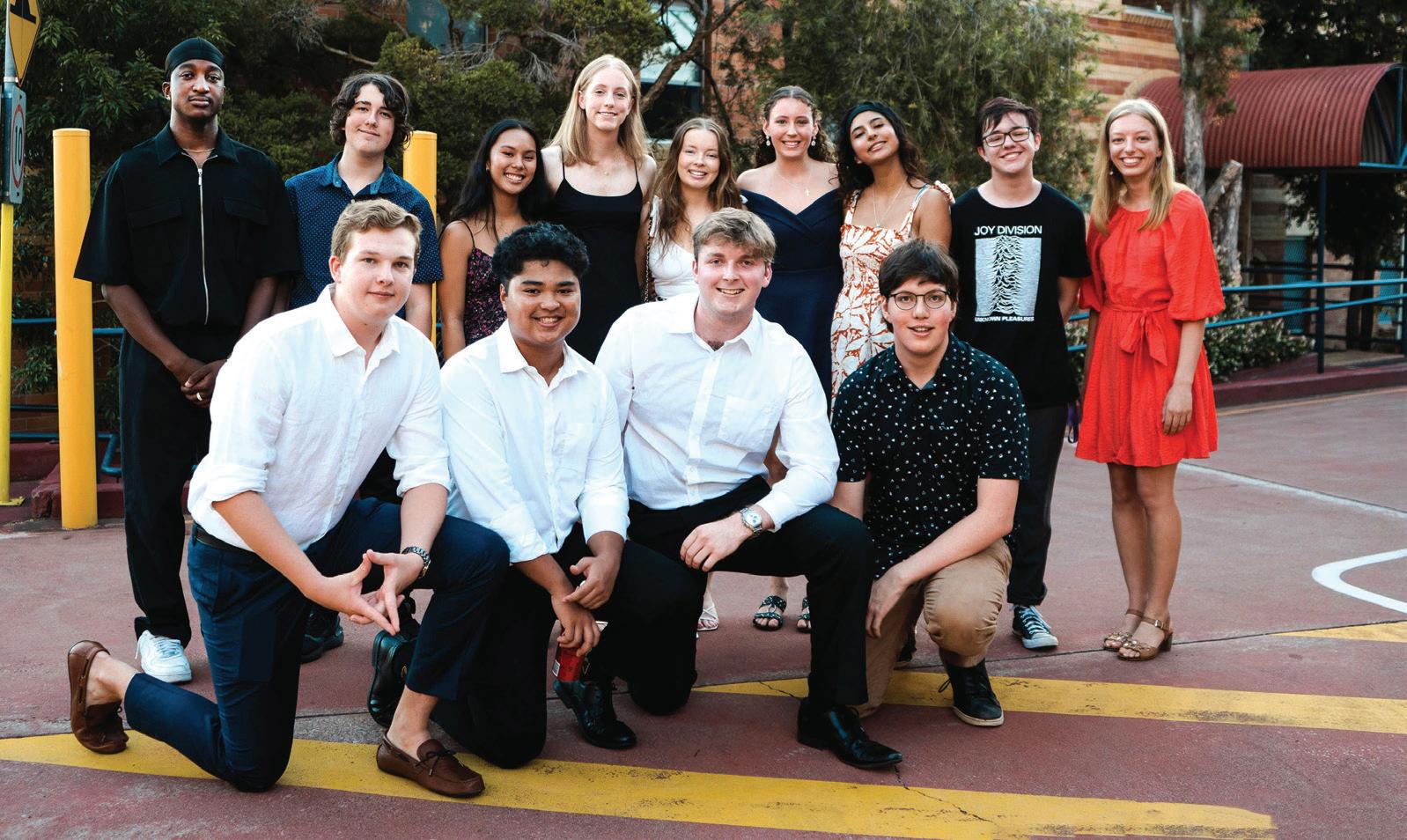
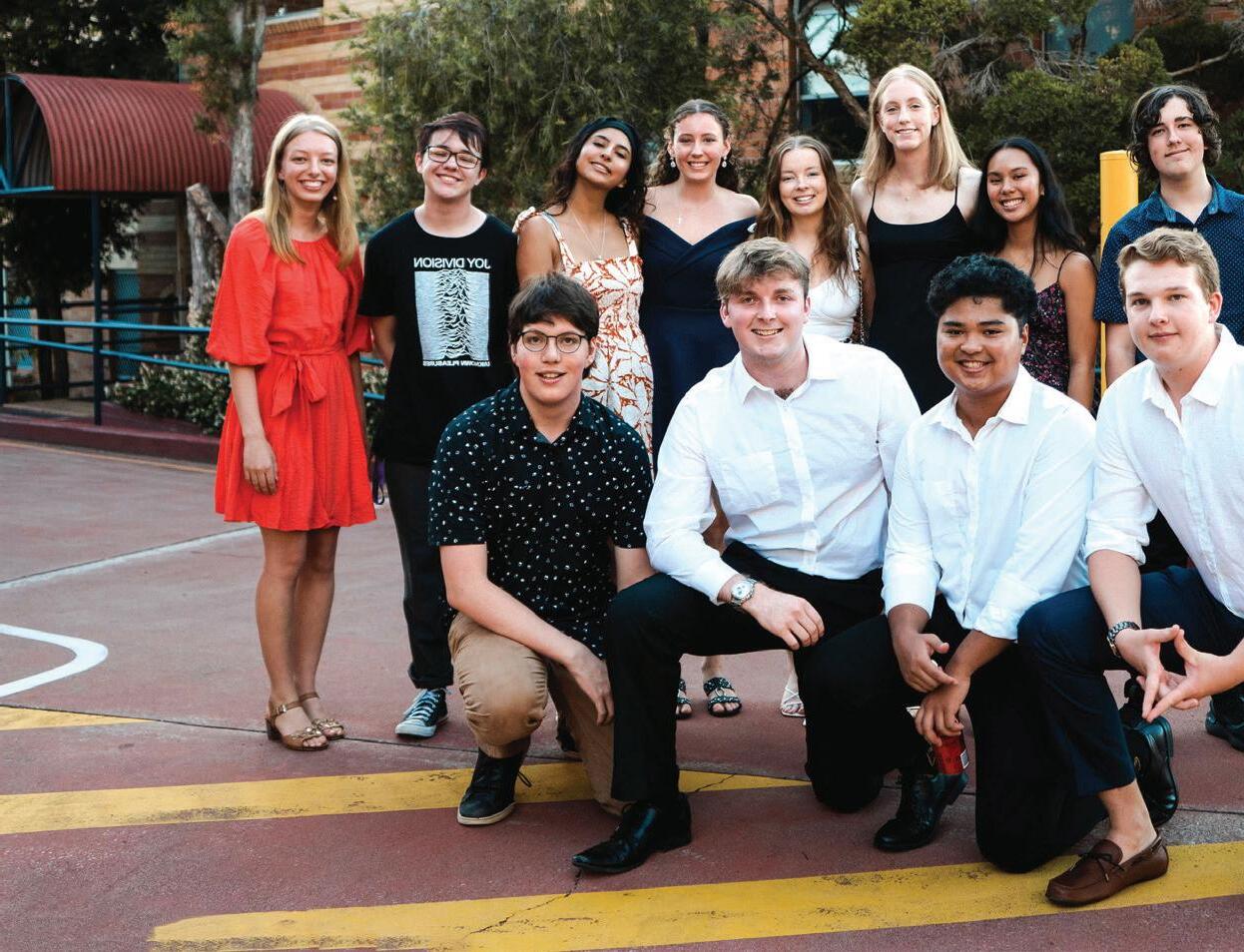

Many of the 20-year-olds were asking big questions, often resulting from deep struggle. Family members had died or there was prolonged illness. They were looking at the world and saying, “Something is not right here.” At other times, it looked on the surface like the person had everything going right. But most began to realise that not only was something not right out there in the world but also something was not right inside them.
The essence of faith stories
And that’s where we, as the readers, relate to the process, whatever age we are, and whatever language we’re speaking. In the quiet of the night, we know our hearts are messy places, and we cannot fix them, or hide the awful scribbles and confusion and darkness, however much we might like to. We long for answers and truth and beauty and acceptance.
Every single story has been different. Yet in essence, they’ve been the same.

Of course, that’s what I’ve come to see, through the writing more than the percentages and the numbers: God’s astounding grace. He loves us. Every day, he is at work in the world, in crazily unique ways, drawing people into a living relationship with himself, through his Son, the Lord Jesus Christ. Every day, he is fixing our mess, and he has fixed it for all time through the redeeming cross of Jesus and the empty tomb.
This is God’s gracious work, welcoming us in, offering us peace and relationship and forgiveness. Every single story has been different. Yet in essence, they’ve been the same: “Jesus died for me.”
Sometimes the person’s understanding of God’s grace and mercy happens in an instant, and they respond in repentance and faith. At other times, it
seems to take months and years for the person to come to know and love the Lord Jesus, submitting to his Lordship. Indeed, writing these stories has reminded me that we’re all on a long and winding journey and that God is at work in everything.
Darren reminded me that I still have 750 faith stories to go if I want to get to 1000. He said that at this rate, it might take another 15 years. I smiled at the thought. If I do happen to be still sitting here at my desk, interviewing and writing and waiting on God in another 15 years’ time, I’ll be deeply thankful.
That reminds me: Darren and I have a dream for next year. We’d love to take Faith Stories on the road and visit lots of smaller, rural churches, gathering and sharing faith stories. If you would like us to visit your church, please let us know. Also, if you have been one of the 250 people who have shared with me, thank you! If you haven’t and would like to, please email me at naomireed@tpg.com.au.
Or, equally, you could dob in an easily persuaded friend or family member ... and convince them to share their story more widely. For me, gathering and writing 250 faith stories has continued to feel like eating sticky date pudding in the winter … except far, far richer and more satisfying and surprising than I ever imagined.
Ican’t remember a time when I didn’t have a faith in Jesus. My parents were both Christians. They were ordinary people – a farmer and his wife. But they had a genuine faith in Jesus, which meant I was taught well from the Bible from early on. I had a good grasp of the gospel, and it made sense to me in a logical way. I was always the kind of Christian whose faith was very intellectual: in my head. I knew there was a sovereign creator, God, and I completely understood the historical reality of Jesus. I knew he died on the cross for us and he rose again. The tomb was found empty. It was historical fact and it seemed so obvious to me. Yes, it was extraordinary and supernatural. But we were talking about an extraordinary, supernatural God!
Throughout those years, until I was 40, I relied on that logic and I distrusted my feelings. I thought you could be led astray by feelings.
Then, in 2005 and 2007, my husband and my eldest son died. We were all shattered. Our two younger children were in primary school and early high school at the time. Their entire childhood was overshadowed by the loss.

For me, after years of not trusting my feelings, the reality was that at the time when I was most shattered, God touched me through my feelings. He was able to reach me in a way I had never experienced before. He was able to comfort me. It was almost a physical sensation of his arms around me at my worst moments. I understood deeply that God was walking
the path with me. I experienced his love and care for me in a remarkable and practical way. None of us would ever choose suffering. But Jesus chose to go through suffering for us.
I think if someone had told me before it happened that I would describe it that way I would have scoffed. I would not have thought it was possible. But the truth is that God is the God of our whole selves, including our feelings, as well as our rational understanding.
It’s been 16 years now, and it’s not a pain that ever goes away. It’s like learning to live again without a limb. You never get over it. But you learn to live with the injury you carry … and you even learn to live a happy, productive life. Prior to 2007, I had been working in the corporate world and the public service. But after my son died, it was a catalyst to stop and think. Life is very short, and I wanted my work life to connect with my faith in Jesus. So I quit my job in the corporate world and I became the CEO for Bible Society in SA and the NT. Then, in 2014, I became the CEO of Langham Australia, helping to equip leaders and pastors in the global church.
The Bible passage that became particularly dear to me during those years was Isaiah 53, about the suffering servant: “He was pierced for our transgressions, he was crushed for our iniquities; the punishment that brought us peace was on him, and by his wounds we are healed …” (v5)
It touched me at an emotional level. Jesus not only understands suffering and experienced suffering, but
he voluntarily chose to go into suffering for my sake. When I suffered and grieved, I had no choice in the matter. None of us would ever choose suffering, but Jesus chose to go through suffering for us.
Looking back, I think the grief helped me to see that God was close and real, walking with me, grieving with me. I know it was never about my ability to stay close to him, but it was about his faithfulness in staying close to me. It’s exactly like the words you hear other people say: ‘I would never wish to go through that terrible time, but having been through it, I now know how remarkable it is that God draws near.’ ”
“He was pierced for our transgressions, he was crushed for our iniquities; the punishment that brought us peace was on him, and by his wounds we are healed.”
Isaiah 53:5
FAITH STORIES WITH NAOMI REED
Gillean’s story | Jesus suffered for us
Scan or visit qw.au/donate Give Now to Share Give Now to Share Jesus with Kids! Jesus with Kids! "sharing the story of Jesus in a child-friendly, meaningful way" - Debra from QLD, after seeing a Quiz Worx school show Amazing community Best location for Brisbane unis Supporting academic success Places available for Semester 2, 2023 and Semester 1, 2024 visit raymont.com.au or call 07 3377 9903 Find out more Gillean’s story is part of Eternity’s Faith Stories series, compiled by Naomi Reed. Read more Faith Stories at eternitynews. com.au/section/faithstories
‘My grief helped me
to see
that God was close and real’
“
Healing the ‘father wound’
healing happens. So we’ve got to create places and spaces where men can be honest and vulnerable, and there, God does his work,” he says.
“I think guys have got to get into community. They’ve got to get into the Bible and they’ve got to get into God’s presence through prayer and worship.”
While Alcorn had a great relationship with his own dad, he understands the father wound from the experience of his father, Alex.
“He was a legend, my dad. He was the town drunk at 24, but then followed Jesus from the day he knelt down in a gutter and for the rest of his life – 70 years. He had his own struggles that came out of the damage to his life. This is what people don’t realise. You come to Christ and you probably will still have a limp for the rest of your life, but you’re limping to heaven.
Pastor Wayne Alcorn reckons there are men sitting in church services all across the country with their arms crossed, disengaged from worship, because they feel an underlying resentment towards God.
They can’t relate to God the father or embrace his love because of troubles in their relationships with their earthly fathers.
While saved, they are limping towards heaven, unable to be an effective ambassador for God’s king because of this “father wound”.
Alcorn, National President of Australian Christian Churches and Senior Pastor of the thriving multicampus Hope Centre in Southeast Queensland, cites the example of a man who was so scarred from his dysfunctional relationship with his father that he was unable to say the Lord’s Prayer.
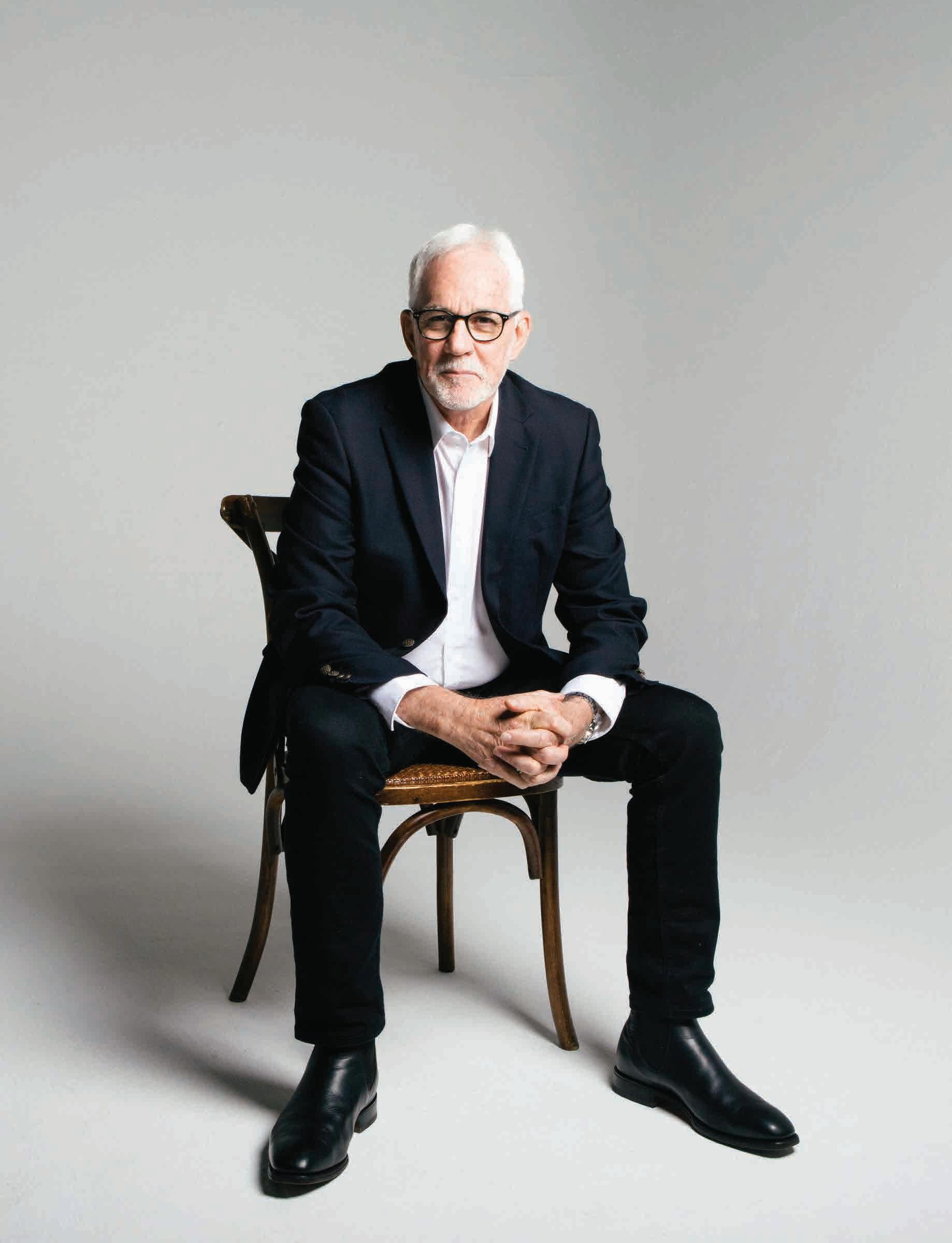
“He had a horrible background as a child, with a father who had massive mental health issues. I said to him, ‘You’ve been a follower of Jesus for 20 or 30 years, how do you say the Lord’s Prayer? How do you pray to God the Father?’ And he looked at me and he said, ‘Oh, I don’t. I talk to Jesus and I hope he passes it on.’
“Now that would be funny if it wasn’t so tragic. He can’t relate to God as father.”
In his new book, My Father’s Son: A Generational Journey, published by Acorn Press, Alcorn maps out a healing pathway for emotionally damaged men that allows them to write a new family tree.

“If you don’t like your family tree, plant a new one. That’s what my father did. So maybe you are the generation that says, ‘This is where it ends – my kids and my grandkids and their kids, this is the way this family’s going to be,’” he says.
“We’re going to stop this rot and move forward to where people are growing up whole and flourishing in life.”
Alcorn discovered the prevalence of this father wound early in his ministry among youth. As the founder of Youth Alive, who was also a youth leader at his father Alex’s church in Ipswich, outside of Brisbane, Alcorn saw a clear pattern.
“I’d go to court with a young person. I’d counsel some kid at a youth camp and all of a sudden, I realised so many of them were void of genuine father’s love. I’ve never been to court with a kid that had a decent relationship with their father,” he recalls.
“I shelved that by and large, and just got on with my job for nearly 20 years of working with teenagers.”
Then in 1999, just before the millennium turned, Alcorn received a prophetic word as he was due to get up and preach in Melbourne.
“I heard as clearly as I’ve ever heard God’s voice say, ‘You’ve spent the last 20 years helping teenagers. Now it’s time to help their fathers.’ And without me trying to do anything, I started getting invited to more and more men’s events.”
That’s when he realised that when fathers say they want their kids to “come right, they’ve got to come right themselves.
“I realised a lot of these men’s dysfunction comes out of the brokenness in their own relationship with their father. And generationally, it’s being handed down,” he says.
“Our news every night is filled with stories of juvenile problems. I guarantee we won’t find too many of those kids in juvenile crime who have got a decent home life and a good relationship with their dad, whose dads are stable, whose dads aren’t in trouble themselves.”
But before you think it’s just children of criminals and drug-addicts who suffer a father wound, Alcorn gives the example of the son of a well-known
politician who suffered the damaging effects of an absent father.
“These aren’t just drug-addicted, criminal fathers. These people are sometimes highly professional. They’re providing the best education and the best homes, and yet they’re just never there. And the kid says, ‘Would you just sit down and talk to me?’ ” So what are the scars of living a fatherless life and how can they be healed?
“I honestly think the healing is twofold: there’s the divine and there’s the natural,” says Alcorn, hastening to add that he’s not a counsellor or a psychologist but a pastor. “The divine is people need to have a relationship that comes from a revelation of God the Father’s heart. That’s the ultimate healing. But there are also processes that facilitate and add to them.”
Alcorn is a firm believer that the church has a big role to play in this healing journey – despite criticisms of its flaws.
“Church should be like a hospital. The hospital doesn’t do the healing, but it’s the place where the

“My dad still wrestled with some things, like insecurity, but he was amazing. He was so loved. He’d go in and help fix churches. He was literally a preacher all my life and stayed true to his call.”
With his grey hair, Alcorn says he genuinely feels a fatherly responsibility for his church staff, most of whom are half his age.
He notes that he and his wife Lyn (who also serves as a Senior Pastor at Hope Centre) are ‘mum and dad’ wherever they go. “That’s my mission now, still leading a church. My own son is the Executive Pastor here – a phenomenal preacher – and I see him walking around here. He doesn’t carry any of those scars. His kids, my grandkids, walk around here like they own the place. And there’s just something really healthy about that.
“I know how life can be, and my simple prayer is that something that’s written in my book can spark a conversation with others that’ll ultimately point people to the heart of God and they can know life to the full.”
16 nigeb oy u r journeywith chc today:begin yo u r htiwyenruoj chc :yadot chc.edu.au “ “
We’ve got to create places and spaces where men can be honest and vulnerable, and there, God does his work.
Anne Lim
My Father’s Son: A Generational Journey by Wayne Alcorn is available from Koorong.
Natasha Moore

When I say that everyone I know seems to be reading Chris Watkin’s book Biblical Critical Theory or else is meaning to, that’s probably an exaggeration. But it’s certainly coming up an awful lot in conversation.
Maybe that sounds unlikely. This is a very big book (600 pages) with rather a stern title. Unless you’re into Continental philosophy or Twitter firestorms, “biblical critical theory” could seem off-puttingly academic, intimidating or boring.
Certainly, Watkin’s book is intellectually meaty. But it’s very unlike some of the abstract, impenetrable, brain-frying prose that goes by the name of cultural theory.
Watkin is at ease with Derrida and Foucault, Kristeva and Lacan, Zizek and Heidegger – but rather than showing off his virtuosity, he wants to take us along with him on his quest to understand (in the words of the book’s subtitle) “how the Bible’s unfolding story makes sense of modern life and culture.” He explains things with both care and verve, every step of the way, bringing the most complex ideas within reach and making the whole thing feel like a glorious adventure.


Intrigued? As a bit of a taster, here are five things I took away from what will only be my first reading of Biblical Critical Theory:

1. You have a social or cultural theory. Even if you think you don’t have or need such a thing (and therefore that this book isn’t relevant to you), Watkin is very clear that this is not some elitist hobby for people who enjoy philosophising, but a very practical thing. He writes that a theory of what society is, how it operates and how things should be instead “shapes what we pay attention to in ourselves and in the world from the moment we wake until the moment we fall asleep … It influences what we want out of life, what we spend our money on, and what we devote our leisure hours to. It provides a blueprint for what counts as a successful day, a successful year
and a successful life … Our choice is not whether we will live in the light of a social and cultural theory or not. Our choice is which cultural theory or theories will shape the figures of our lives and our world.”


2. The Bible offers the broadest, richest, most allencompassing and generative account of reality; the lens through which life and culture make most sense. Critical theory and biblical study are usually two entirely separate conversations! But Watkin insists that the Bible is the best tool out there for cultural critique – and that Christians should really, therefore, be better at social theory than people who don’t avail themselves of it: “As Chesterton reminds us, the Bible ‘looks at the world through a hundred windows where the ancient stoic or the modern agnostic only looks through one.’ Let us then open the Scriptures and let the light in!”
3. There are dots waiting to be joined from every element of the Bible to our world today. Lamech or the Tower of Babel, idolatry or exodus, prophets and kings: some of the most specific or apparently historically bound stories and concepts from the pages of Scripture are like a Mary Poppins’ bag, with unexpected resources to be drawn from their depths in order to illuminate the here and now.
4. A biblical critical theory will have a lot to say about the hot-button issues of our day – but even more usefully, it can make visible some of the powerful undercurrents of contemporary life that we barely notice because we’re so immersed in them. Just one example from the book: our culture’s “insatiable and unending drive for efficiency,” our obsession with “technique” as the answer to our problems, “from manufacturing and education to healthcare and dating.” This obsession becomes dehumanising because, after all, “life is not efficient.” And God, rather than being “efficient,” is instead bountiful. (Want to know more? Check out chapter 7, “From Lamech to Noah.”)


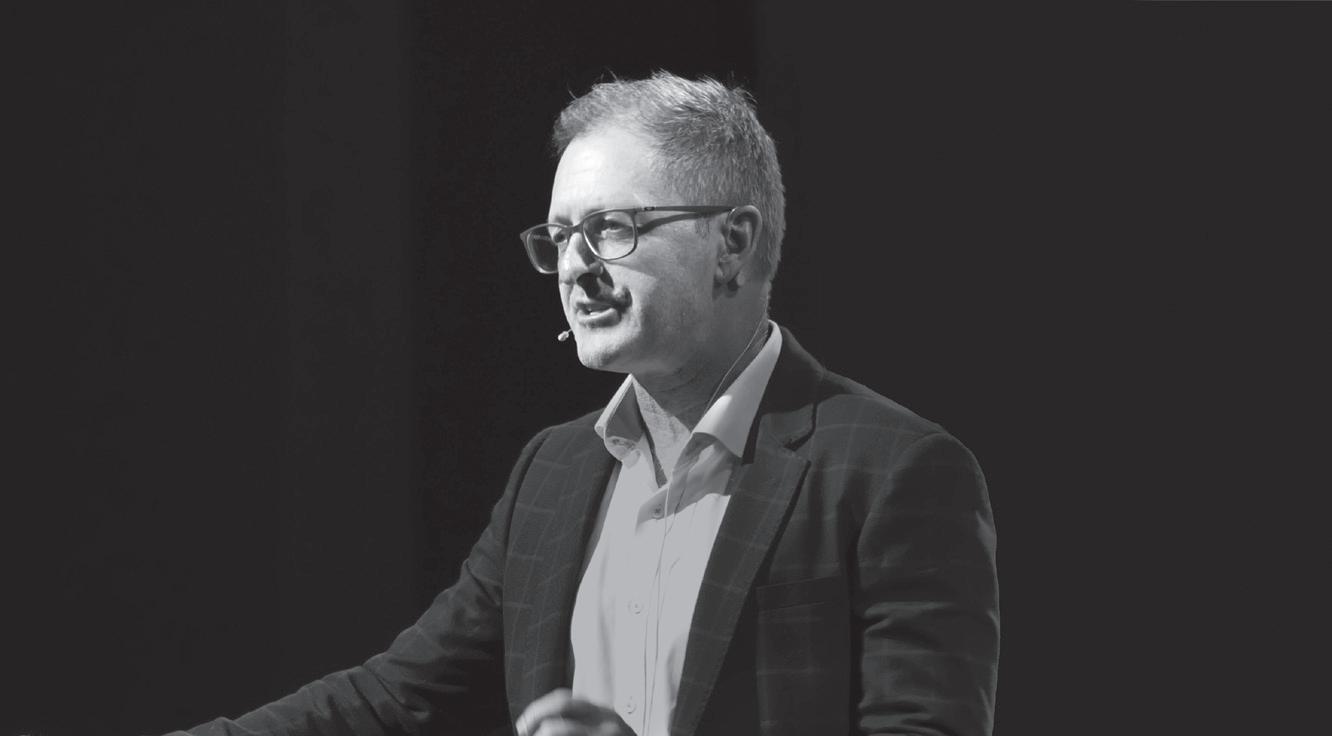
5. A properly rich and robust biblical critical theory can help to get us unstuck from some of the deepest ruts we find ourselves in. So many of our most intractable disagreements today, Watkin argues, come about because we separate out two important truths, set them in opposition, and then insist on picking sides. A biblical critical theory helps us to acknowledge both truths and hold them together in tension – providing a way forward on some very fraught issues. (For example: the Bible’s vision of hope for the future cuts across both the incremental progress prized by conservatives and the revolutionary progress dreamt of by progressives. The Bible is at once more pessimistic and more optimistic than either!)
Biblical Critical Theory is essentially a “public Christianity” handbook – so, naturally, as someone who works for the Centre for Public Christianity, it’s of interest to me! But it’s a boon to anyone who wants to know what the world we live in looks like –its contours, key features, highways, pitfalls – when the lens of the Bible brings it into focus.
Natasha Moore is a Senior Research Fellow at the Centre for Public Christianity and the author of The Pleasures of Pessimism and For the Love of God: How the Church is Better and Worse than you Ever Imagined.
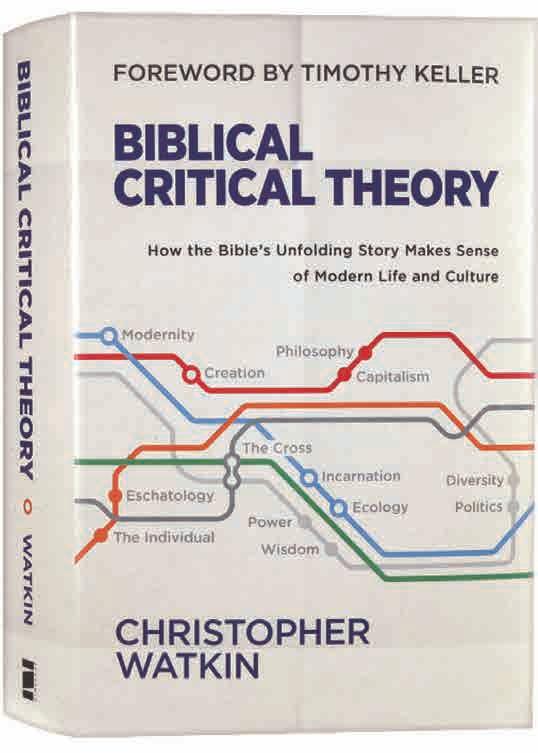
18
Five things to take away from this very big book you should definitely read
E X P ERIENCED& ENGAGING FOR YOURNEXT EVE N T COMMUNICATORS CPX SPEAKERS CPX Speakers Enquire today. A weekly conversation about the beauty and complexity of belief in the 21st century. Listen here. Scan the QR code to find Biblical Critical Theory at Koorong.
CENTRE FOR PUBLIC CHRISTIANITY
ABN: 58 004 265 016 CRICOS: 02650E | ACN: 004 265 016 Melbourne School of Theology is authorised to deliver courses for the Australian College of Theology Explore the depths of your faith Want to explore your missional heart? Or search the depths of the Bible? Want to get equipped for ministry? Or learn how to effectively communicate the Gospel to a diverse and changing world? Then Melbourne School of Theology is for you. GO DEEPER AT Melbourne School of Theology 5 Burwood Hwy Wantirna VIC 3152 03 9881 7800 info@mst.edu.au | mst.edu.au/godeep
BIBLE SOCIETY AUSTRALIA

Opening the Bible together
– an enduring friendship and a lasting legacy
Karen Mudge
In 1990, on the Anangu Pitjantjatjara Yankunytjatjara (APY) Lands in remote northwest South Australia, two women were introduced by the church in Ernabella. This introduction – and the openness of both women to the call of God on their lives – led to a deep and enduring friendship, and a lasting legacy, to the glory of God.
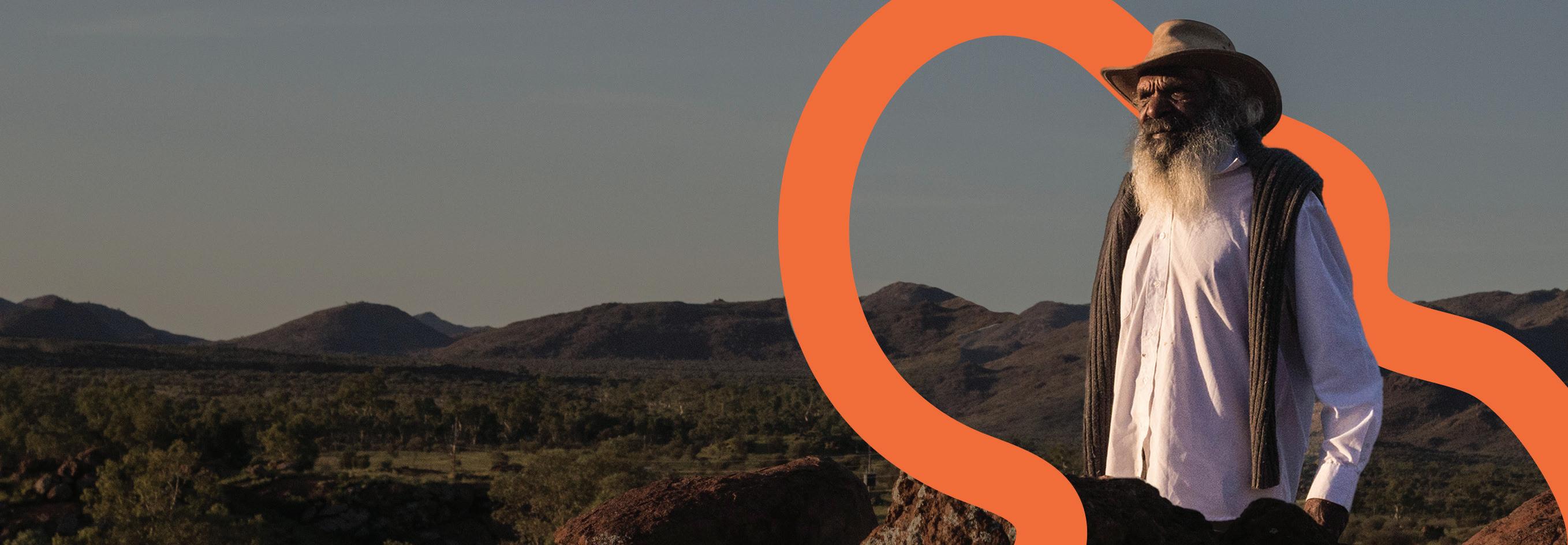
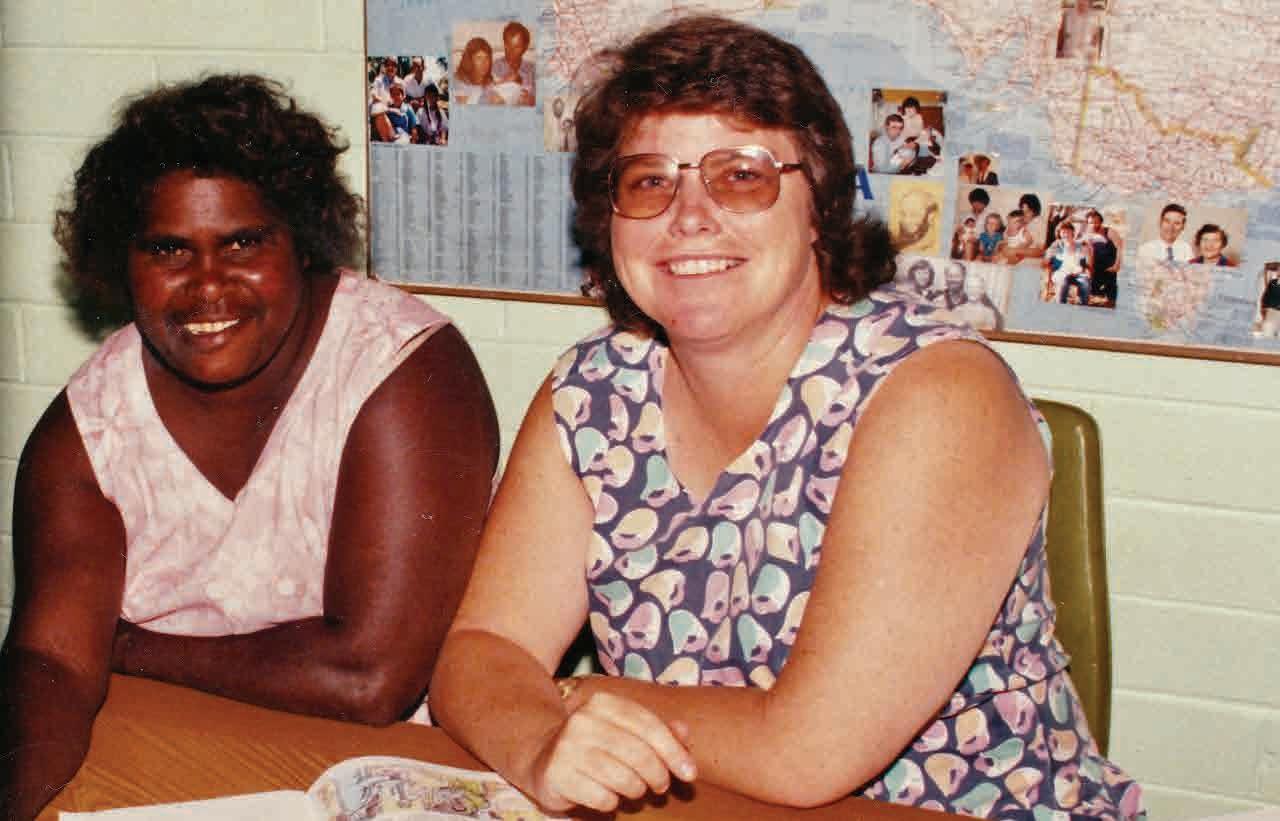
Ann Eckert and Kanytjupai Armstrong’s friendship began as they met to open the Bible together. Their goal was translation – to record the words of God in the Pitjantjatjara language. As they started out, Kanytjupai was shy; she hadn’t any experience in translation. “Over time I realised what a humble, teachable, patient and keen person God had provided,” says Ann. Kanytjupai invited her school friend Margaret to join them in the task of translation. “Margaret was a wonderful committed Christian,” Ann explains, “and was more bilingual and a good addition to the team.”
As a team, Ann, Kanytjupai and Margaret set to work on translating the Bible into Pitjantjatjara.
“Kanytjupai’s strong ability and passion was insisting on naturalness in the Pitjantjatjara translation, without letting the form of English influence our work,” explains Ann. “I worked by pre-studying the text, with commentaries so I could help untangle and clarify meaning.” Kanytjupai’s embrace of natural language complemented Ann’s background in biblical languages and education. Kanytjupai went on to be one of the first to get her Certificate IV in Translating and grew proficient on-the-job. Ann remembers, “Kanytjupai wanted to be true to the text, even if it meant a potential clash with something of traditional culture. She said, ‘I don’t
want God to accuse me of tampering with his word.’ Even if it meant misunderstanding or persecution, she remained resolute and faithful.”
From the moment the church at Ernabella chose her to join the task of Bible translation, Kanytjupai found her life’s purpose. “From that moment, she threw herself into that purpose,” Ann recalls. “She never, till her dying day, got distracted from that task. It was God’s purpose for her.”
When the Pitjantjatjara Shorter Bible was published (the New Testament and 15 per cent of the Old Testament) in 2002, Kanytjupai rejoiced, along with many others. “Kanytjupai wanted the text to be so readable and natural that once we published in 2002, we’d find her with her pencil, still wanting to edit ‘just little bits’!” says Ann.
When the team decided to push on with Old Testament translation in 2010, Kanytjupai “got busy again,” says Ann. “Even when a stroke robbed her ability of writing easily, she enlisted ‘scribes’ to continue; even a faithful friend who was with her in ICU once was asked to get to work alongside her!”
Kanytjupai also participated in the Pitjantjatjara New Testament multi-voice recording project in Alice Springs in early 2018. “She was an excellent reader,” recalls Ann. “We were so pleased she was able to record three chapters of Romans. She was also doing a written translation, helping with the audio, and she had diabetes, she was on dialysis, she had both legs amputated and in a wheelchair. She was tenacious.”
Kanytjupai and Ann at work translating in their ‘early days’.
Kanytjupai could see the opportunity presented by having an audio version, including the chance younger children would have to hear it, and the opportunity to have the Bible on people’s phones. “She realised some people couldn’t read; some people wouldn’t read,” says Ann.
Kanytjupai first-drafted more of the Old Testament than anyone else to date: Deuteronomy, half of I Samuel, Daniel, Proverbs, many Psalms and was more than halfway through the Song of Songs when she passed away in 2018. “The day before she passed away, she wasn’t ready to give up, as the translation was not finished,” Ann recalls. She kept singing the chorus He’ll Never Let Go of Me in Pitjanjtjatjara. The next day, she passed into God’s presence.”
Kanytjupai lived a life committed to God, leaving a lasting legacy in the lives she touched and the Scriptures she translated. Her greatest desire was to have God’s word translated into her heart language, Pitjantjatjara, so that more people could know God’s love.
Would you consider supporting this work, to which Kanytjupai so joyfully dedicated her life?

Please consider making a tax-deductible donation today at biblesociety.org.au/share

Karen Mudge is Copywriter for Bible Society Australia.


sovereigntypsychology . com . au (03) 9748 2500 • admin@sovereigntypsychology.com.au Use our Australia-wide telehealth services or in-person appointments available in Melbourne
psychologist who understands your Christian views? Speak to a Christian psychologist who understands your faith. At Sovereignty Christian Psychology we offer professional psychological counselling in a wide range of areas including depression, anxiety, stress, trauma, abuse, PTSD, addictions, relationship issues, adjustment disorders, sleep issues, grief and loss. We also work with children and adolescents. BSA_SovereigntyPsychology_FulPage_WS v04 Print.indd 1 19/4/23 5:10 pm Join us in our mission to translate the Bible into the heart languages of our Indigenous brothers and sisters. Please consider making a tax-deductible donation today at biblesociety.org.au/share we can Open The Bible across Australia
Need a
Join David Bentley Hart world leading philosopher and theologian and Dr Tony Golsby-Smith the founder of Gospel Conversations as they address the vast landscape of What does it mean to be human?
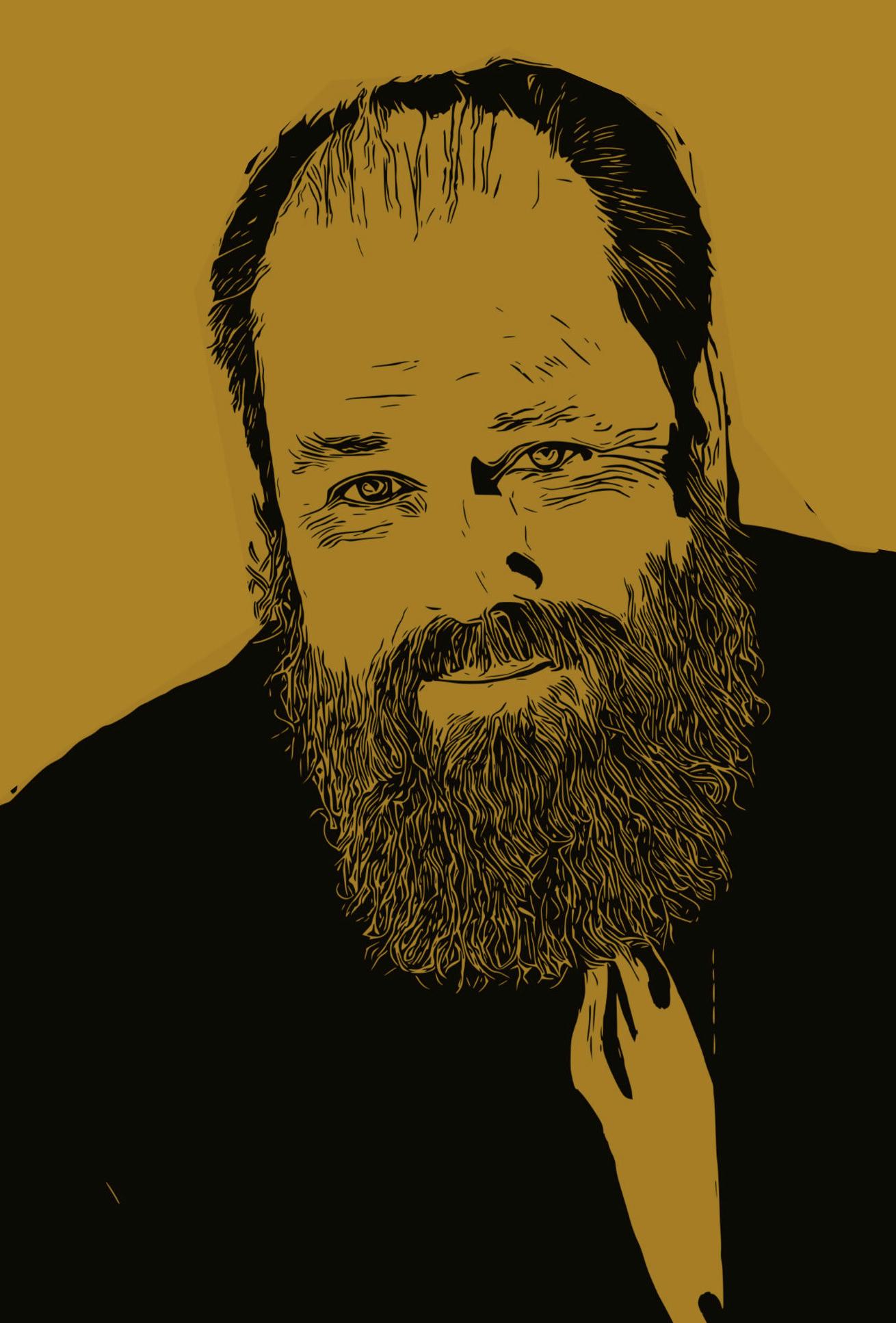
August 1 8 21
Evening lecture
Does God cause suffering?
Jesus Revolution creates waves in Hollywood
Evening lecture
What does Beauty tell us about God?
7.30pm @ PLC Sydney campus in Croydon
Discussion style
Is the mind a machine?
7.30pm @ PLC Sydney campus in Croydon
Discussion style
check website for details, venue TBC 25 26
What does it mean to be human?
9am - 4pm @ PLC Sydney campus in Croydon
What you will learn – new language, new thinking about the gospel
The Apostle Paul framed the gospel in revolutionary, non-religious language. It is this kind of thinking that David will open up for us. He will open doors into new worlds – drawing on scripture and philosophy.
Head to gospelconversations.com to learn more and register!
Anne Lim
The Jesus Revolution movie, which ranked in the top 10 movies in Australia and New Zealand for weeks after opening on April 20, has sparked a powerful movement of God in Hollywood, according to its director Jon Erwin. The story of three people caught up in the Jesus Movement of the late ’60s and ’70s has created such a buzz in the US that it triggered a sense of FOMO (fearing of missing out) among American filmgoers, he says.

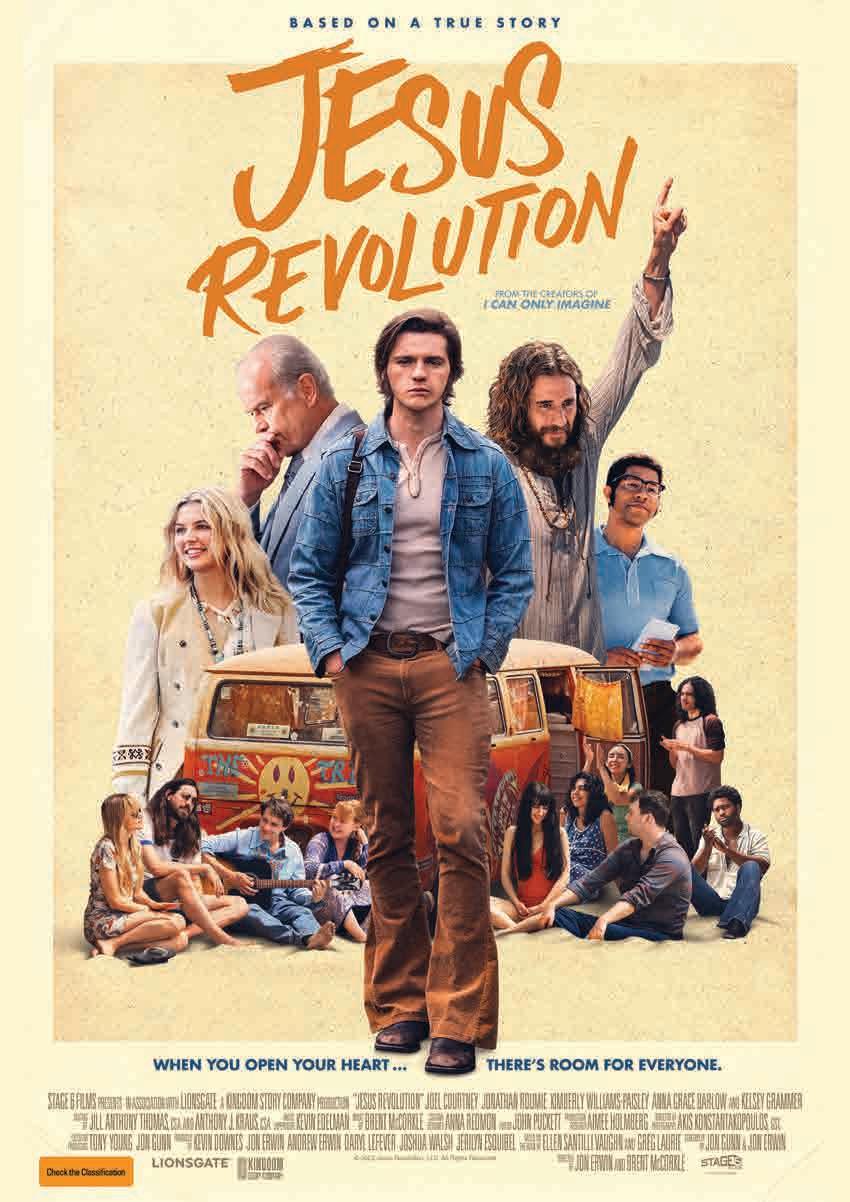
The “power of our unified voice as a faith community” has enabled the film to cross into the general market, earning $US52 million at the US box office since February and creating a Zeitgeist penetrating Hollywood.
“When something is popular in [movie] theatres, Americans go see it,” the Christian film director, screenwriter and producer explains during a Zoom call with Eternity from Los Angeles.
“So when something opens in the top three movies in America, which we did – and does far more than it’s expected to do – millions of people begin to say, ‘What is this? I want to go see this.’ And that’s exactly what happened … there was a flood of people that would’ve never otherwise seen the film – just because we all made so much noise together, and that really is the way entertainment works.”
Jon, who with his brother Andrew, is known for faith films such as Woodlawn, October Baby Moms’ Night Out and I Can Only Imagine, finds Hollywood “a very dark and tough deal to plough,” but he sees God at work there as never before.
School of
#1 Ranked University in Australia for Student Engagement*


The University of Divinity has been Australia’s pre-eminent Christian higher education institution since 1910. The
“There’s an uprising on behalf of Christianity within the studio system in Hollywood at every level. It’s like nothing I’ve ever experienced in my career,” he says. “And your movie ticket really is your vote. As these films do better, the momentum keeps building out here. And God is at work in people’s lives.”
Jon says making Jesus Revolution had a deep impact on the headline star, Kelsey Grammer (who played Dr Fraiser Crane in Cheers). He plays Chuck Smith, the American pastor who took a risk by welcoming hippie street preacher Lonnie Frisbee and his followers into his Calvary Chapel, where they sparked a revival that spread throughout California and eventually across the world.
“Jim Carrey said it best: ‘I wish everyone could be rich and famous and have everything they’ve ever wanted, to know it’s not the answer.’ [Los Angeles] is a unique town because there’s a lot of people who have all these things that the world would say would make you happy, and yet they’re not happy. And so there’s a unique ministry out here; so pray that would continue,” he pleads.
“Like Caleb said in the Bible, ‘God, give me this mountain!’ A bunch of us are looking at the hill with the Hollywood sign on it, praying the same prayer: ‘God, give us this. We want it back.’ ”
Jon had been obsessed with the Jesus Revolution story since 2015 when he bought a copy of the 1971 TIME Magazine cover article on eBay that gave a “buoyant, optimistic, beautiful portrayal of a sweeping spiritual awakening in America.”
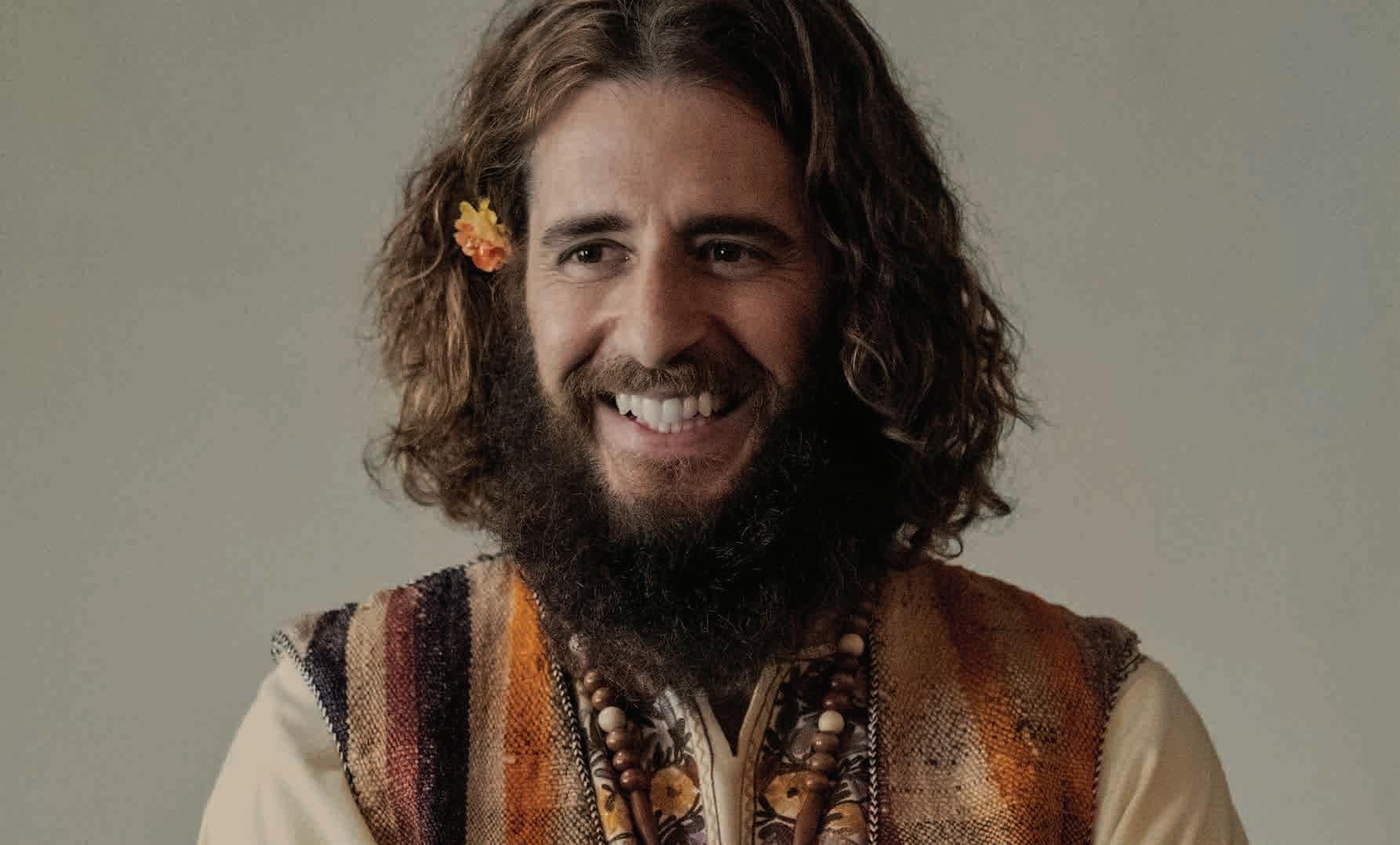
The timing of the movie’s release, though greatly delayed, has been perfect, coming amid campus revivals such as Asbury (see pages 10-11) and a similar social climate to the 1970s.
“One of my takeaways from the film is that God’s timing really is perfect,” says Jon. “This is a film that I had been trying to get made for a very, very long time. And we were three weeks away from shooting before Covid hit … and all theatres across the world were closed, in a thing none of us could have predicted.
“So we had to wait a long time. But in waiting a long time, I got to rejoin the project as director. So I was available as co-director with Brent McCorkle, who’s amazing, and Kelsey Grammer became available [to play Chuck Smith]. Jonathan Roumie from The Chosen became available [to play Lonnie Frisbee].
“So the movie that you see would not have been possible under the prior timeline. And then, the fact that it came out in America as these revivals were happening at college campuses, like Asbury, showed me that even when you’re walking through a difficult time and don’t understand, God has a plan; his plan is better. Just keep going. That’s the key. Just put one foot in front of the other because what he has in mind, even if you don’t see it at the time, is better than what you had in mind. And the film we’re all seeing now is the best version of the movie, and it’s the best time for the movie to come out – and none of that would’ve happened under the previous plan.”
The timing of the film is also perfect, Jon believes, as he sees the same desperation that characterised the 1970s in today’s turbulent society.
“It was a very divided time around the world, and I think it is again today, and we’re looking for answers. We need hope, and I was awestruck by the similarities of the time when I was researching the project. What’s interesting about the film is it’s a 1970s movie, but 20 minutes into the film, you forget that it’s not a modern movie because we’re dealing with so many of the same issues today, and we are asking, ‘Where are the answers? Where’s hope? Why are we so divided? Can we love each other again?’ These are all issues that the movie deals with.” Jon concludes, “I feel like the whole heartbeat of this movie has been if [a Jesus Revolution] happened then, it can happen now, because we need it.”
For more information about Jesus Revolution, including where to watch, visit JesusRevolutionMovie. com.au
23
fri mon fri sat
Professional Practice
School of Professional Practice is now open for enrolments! To learn more and apply, call (03) 9853 3177 or visit: www.divinity.edu.au/spp/ *2017, 2018, 2019 - Includes teaching quality and skills development metrics. (qilt.edu.au) Counselling Melbourne Sydney Brisbane Professional Supervision Melbourne Leadership Melbourne Brisbane Adelaide Online Online WE’RE GOING NATIONAL!
Jonathan Roumie as Lonnie Frisbee. Images: Jesus Revolution/ Lions Gate Entertainment .
Kelsey Grammer (front) as Pastor Chuck Smith.
How hard is it to get a kid to school?
Emma Halgren
Parents of school-aged children know how hard it can be to get kids to school each day. Getting out the door requires tackling a whirlwind of breakfast dishes, half-filled lunchboxes and missing school hats.
The morning rush is stressful, but for communities facing poverty around the world, the question of “how hard is it to get a kid to school?” is a much more loaded one. It’s about how an entire future will play out. It’s about trying to overcome the many barriers that stand in the way of every person’s right to an education.
For girls in particular, like Mary in South Sudan, education is constantly under threat from a range of factors, including the lure of early marriage to ease a family’s economic pressure, and cultural expectations about women’s roles in society. Yet educated women typically have fewer children and are able to better care for themselves, and when women thrive, the whole community benefits.
Tearfund’s Christian partner ACROSS has been faithfully working with communities in South Sudan for decades. Its work promoting education and training and supporting teachers has made
a pathway for children, especially girls, to pursue learning with vision and confidence.
Mary is so grateful that her parents supported her education. “They became aware of the importance of education from educated community members … and advocacy from the government and ACROSS which mobilised our community to send all children to schools, including girls like me. That is why I am in school today,” she says.
Now a teenager, Mary has been trained by ACROSS to support other girls to stay at school. “This year we have brought back four girls who had dropped out and 20 newly enrolled girls to the school as the results of the skills and knowledge we gained. We have also helped two girls from our school who were about to be married off before finishing their studies.”

While missing out on an education can quickly lead to a cycle of poverty, the good news is that breaking that cycle is incredibly effective in changing the course of a person’s life. Achieving a basic education is a key step toward fullness of life, unlocking a world of other opportunities. At Tearfund, we believe that even when poverty says there is no way, our hope is
in a God who makes “a way in the wilderness and streams in the wasteland” (Isaiah 43:19).
We believe that every child has God-given talents that can flourish with access to education. For Mary and others in her community, education has been transformative.

“ACROSS has really equipped us with skills and knowledge that enable us to have courage to complete primary school and go for further studies for our bright future,” she says.
You can help make a way out of poverty for people like Mary. Give today by using the QR code below or going to tearfund.link/23efyep

Emma Halgren is Content Lead at Tearfund Australia.
You can help Tearfund’s partners make a way out of poverty and into hope. Give to Tearfund’s EFY Appeal today.
learn more here tearfund.link/23efyep
TEARFUND SPONSORED PAGE
Help make a way where poverty says there isn’t one
Even in the world’s hardest places, where poverty and injustice are at their most extreme, the good news of Jesus says that a more just and compassionate world is possible.
Mary, a school student, has been trained by Tearfund’s partner in South Sudan to support other girls to stay at school.




















 McLean Ministries • North Carolina
McLean Ministries • North Carolina























































